Enjoy a sampling of books by UC Davis College of Letters and Science faculty.

At Every Depth
While so much of the ocean is still a mystery to us, the beauty and life within it are being affected by our choices as a species. At Every Depth: Our Growing Knowledge of the Changing Oceans (Columbia University Press, February 2024) by oceanographer Tessa Hill and writer Eric Simons chronicles those changes through the eyes of the community members closest to the shores. But the book is not a passive volume. Instead, it’s a call to action.
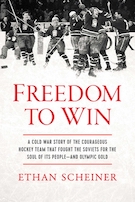
Freedom to Win
Freedom to Win: A Cold War Story of the Courageous Hockey Team That Fought the Soviets for the Soul of Its People—And Olympic Gold (Pegasus Books, July 2023), by political science professor Ethan Scheiner, tells the story of the underdog Czech hockey team that bested the Soviet team in 1969. The Czech team beat the Soviets twice in world championship matches that took place seven months after the Soviets invaded Czechoslovakia to crush the Prague Spring reform movement.

The Exhibition and Experience Design Handbook
Design professor Timothy McNeil's The Exhibition and Experience Design Handbook (Rowman & Littlefield Publishers / American Alliance Of Museums, May 2023) is an illustrated handbook that explains how to design exhibitions and attractions successfully; contextualize contemporary exhibition design practice through its historical and theoretical underpinnings; and elevate understanding of one of the most rapidly evolving and trans-disciplinary creative disciplines.

Aaron Copland in Latin America: Music and Cultural Politics
Music professor Carol Hess examines composer and conductor Aaron Copland's U.S. government-sponsored tours of Latin America between 1941 and 1963 in Aaron Copland in Latin America (University of Illinois Press, February 2023). Based on interviews with eyewitnesses, previously untapped Latin American press accounts and Copland’s diaries inform this in-depth examination of the composer’s approach to cultural diplomacy.
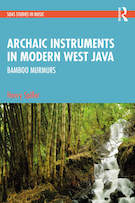
Archaic Instruments in Modern West Java: Bamboo Murmurs
Archaic Instruments in Modern West Java: Bamboo (Routledge, November 2022), by Henry Spilller, professor of music, explores how residents of Bandung, Indonesia, have re-adopted bamboo musical instruments to forge bridges between traditional and modern values, including musical environmentalism, heavy metal music and cultural authenticity.

We Are All Survivors: Verbal, Ritual, and Material Ways of Narrating Disaster and Recovery
We Are All Survivors (University of Indiana Press, September 2022), co-edited by Michael Dylan Foster, professor of Japanese, is a collection of essays exploring the role of folklore in the wake of disasters, including Hurricane Katrina, Hurricane Maria, two earthquakes in Japan, and the earthquake, tsunami and nuclear disaster in Fukushima in 2011.

Dear Mother
Art professor Young Suh's book of photos and writing, Dear Mother (Datz Press, September 2022), brings together images and thoughts about his young daughter, being a first-time father, his mother and his late father. It is written in both English and Korean with color and black and white images.

Queering Mesoamerican Diasporas
In her new book Queering Mesoamerican Diasporas: Remembering Xicana Indígena Ancestries (University of Illinois Press, August 2022), Susy J. Zepeda, an associate professor of Chicana and Chicano studies, highlights the often overlooked yet intertwined legacies of Chicana feminisms and queer decolonial theory through the work of select queer Indígena cultural producers and thinkers.

The Small Matter of Suing Chevron
In 2011, an Ecuadorian court issued the world’s largest environmental contamination liability: a $9.5 billion judgment against Chevron. Within years, a U.S. federal court and an international tribunal determined that the Ecuadorian judgment had been procured through fraud and was unenforceable. In The Small Matter of Suing Chevron (Duke University Press, June 2022), anthropology professor Suzana Sawyer delves into this legal trilogy to explore how distinct legal truths were composed through chemical, scientific and legal technique — transforming a contamination claim into an environmental liability, then a racketeering scheme, and ultimately a breach of treaty.

The 5150 Poems
The 5150 Poems (Nine Mile, April 2022) is the 12th poetry collection by Sandra McPherson, professor emerita of English. The "5150" in the title refers to a section of California law which allows an adult who is experiencing a mental health crisis to be involuntarily detained for a 72-hour psychiatric hospitalization and was inspired by her own experiences.

The Newspaper Axis: Six Press Barons Who Enabled Hitler
As World War II approached, the six most powerful media moguls in America and Britain tried to pressure their countries to ignore the fascist threat. In The Newspaper Axis (Yale University Press, March 2022), history professor Kathryn Olmsted shows how these media titans worked in concert to influence public opinion in a right-wing populist direction, echoed fascist and antisemitic propaganda, and weakened and delayed both Britain’s and America’s response to Nazi aggression. Named to Foreign Affairs magazine's list of "The Best of Books 2022."

Haunted Dreams: Fantasies of Adolescence in Post-Soviet Culture
Haunted Dreams (Cornell University Press, March 2022), by Jenny Kaminer, associate professor of Russian, is the first in-depth study of the representation of post-Soviet adolescence in fiction, film and drama. The book maps how the adolescent hero has become a locus for multiple anxieties throughout the tumultuous years since the dissolution of the Soviet Union.

Extraction Ecologies and the Literature of the Long Exhaustion
In Extraction Ecologies (Princeton University Press, November 2021), English professor Elizabeth Carolyn Miller examines how literature created during the rise of large-scale mining in the British imperial world from 1830 to 1930 reflected and commented upon a world where humans became dependent on finite, nonrenewable resources.

The Swank Hotel
English professor Lucy Corin’s novel The Swank Hotel (Graywolf Press, October 2021) interweaves themes of human connection, mental illness, sisterhood and hope through the story of a missing person set during the 2008 financial crisis.

Conquering the Pacific: An Unknown Mariner and the Final Great Voyage of the Age of Discovery
Conquering the Pacific (Houghton Mifflin Harcourt, September 2021), by history professor Andrés Reséndez, recounts the 1564-65 Spanish expedition that was the first to cross the Pacific Ocean from the Americas to Asia and return. The journey began with a secret mission and included mutiny, a shipwreck and an African-Portuguese navigator whose story was almost lost to history.

Peculiar Places
Peculiar Places: A Queer Crip History of White Rural Nonconformity (University of Chicago Press, September 2021), by American studies assistant professor Ryan Lee Cartwright, maps queer and disability histories of white social nonconformity across the rural 20th century United States.

Roadrunner
In Roadrunner (Duke University Press, September 2021), English professor Joshua Clover charts Jonathan Richman and the Modern Lovers' 1972 song "Roadrunner's" emotional power and its elaborate history in pop music along with its connection to American car culture, industrialization, consumption, mobility and politics.

The Persian Revival: The Imperialism of the Copy in Iranian and Parsi Architecture
The Persian Revival (Penn State University Press, August 2021), by art history professor Talinn Grigor, is the first architectural history that traces the evolution of this style first in Europe, then Parsi architecture in British India and the culmination in the revivalistic architecture of Zand, Qajar and Iran.

Making Social Spending Work
How does social spending relate to economic growth and which countries have got this right and wrong? In Making Social Spending Work (Cambridge University Press, April 2021), Distinguished Professor Emeritus of Economics Peter Lindert examines the experience of countries across the globe to reveal what has worked, what needs changing, and who the winners and losers are under different systems.

Dante and Violence: Domestic, Civic, Cosmic
Dante and Violence (University of Notre Dame Press, April 2021), by Distinguished Professor Emerita of Comparative Literature Brenda Deen Schildgen, is an examination of violence in the domestic, communal and cosmic spheres in Dante Alighieri's literary works. Primarily focused on Dante’s representation of his contemporary reality, it demonstrates that the punishments and rewards in Dante’s heaven and hell may be a direct appeal to his readers to recognize the crimes that pervade their world.

The World in the Wave Function
Nearly a century after the development of quantum theories, a consensus has yet to emerge about what these theories tell us about ourselves and our place in the universe. In The World in the Wave Function: A Metaphysics for Quantum Physics (Oxford University Press, April 2021), philosophy professor Alyssa Ney develops a framework initially suggested by Schrödinger — that we, and all objects, are ultimately constituted out of the wave function, and that quantum worlds consist of many more than three dimensions.

Preparatory Notes for Future Masterpieces: A Novel
Preparatory Notes for Future Masterpieces (University of Nevada Press, April 2021), by Maceo Montoya, is a satirical novel about a Mexican American artist's struggle to create great works. It include 50 drawings by Montoya, who is an associate professor of Chicana and Chicano studies.

Alpha Masculinity
Alpha Masculinity: Hegemony in Language and Discourse (Palgrave Macmillan, April 2021), by Eric Louis Russell, unravels the language mechanisms behind the myth and the reality of the American alpha male. A professor in the Department of French and Italian, the author is also affiliated with the Department of Linguistics and the Gender, Sexuality and Women’s Studies program at UC Davis.

Why the New Deal Matters
Arguably the greatest peaceable expression of common purpose in U.S. history, the New Deal altered Americans' relationship with politics, economics and one another in ways that continue to resonate today. Why the New Deal Matters (Yale University Press, April 2021), by Distinguished Professor of History Eric Rauchway, looks at how this legacy, both for good and ill, informs the current debates around governmental responses to crises.

Africanness in Action: Essentialism and Musical Imaginations of Africa in Brazil
Juan Diego Díaz, an assistant professor of music and an ethnomusicologist, reexamines long-held ideas about music of Africa and the African diaspora in Africanness in Action (Oxford University Press, March 2021). Using the perspectives of musicians in Bahia, Brazil, he shows how they promote social change and critique racial inequality by creatively engaging tropes about African music and culture.

The Surrendered: Reflections by a Son of Shining Path
When Peruvian public intellectual José Carlos Agüero was a child, the government imprisoned and executed his parents, who were members of Shining Path. His memoir, originally published in Spanish in 2015, is translated into English for the first time by Michael Lazzara, professor of Latin American literature and cultural studies, and Charles Walker, professor of history. The Surrendered (Duke University Press, February 2021 ) includes an editors' introduction, a timeline of Peru's armed conflict, and an interview with the author.

The Art of Memory: An Ethnographer's Journey
Native American studies professor emeritus Stefano Varese combines personal and family recollections with incisive accounts of academic, political and institutional experiences in his book The Art of Memory (University of North Carolina Press, December 2020). The memoir offers a remarkable account of his life as a foremost Latin American ethnographer and a leading expert in Indigenous cultures, peoples and cosmologies.

La Gente: Struggles for Empowerment and Community Self-Determination in Sacramento
La Gente (University of Arizona Press, October 2020) by Lorena Márquez, assistant professor of Chicana/o studies, traces the rise of the Chicana/o Movement in Sacramento and the role of everyday people in galvanizing a collective to seek lasting and transformative change during the 1960s and 1970s. In their efforts to be self-determined, la gente contested multiple forms of oppression at school, at work sites, and in their communities.

Air Mail: Letters of Politics, Pandemics and Place
During the COVID-19 "shelter-in-place," writers Pam Houston, professor of English, and Amy Irvine began a correspondence based on their shared devotion to the rugged, windswept mountains that surround their homes in Colorado and Utah. Air Mail (Torrey House Press, October 2020) is part tribute to wilderness, part indictment against tyranny and greed.
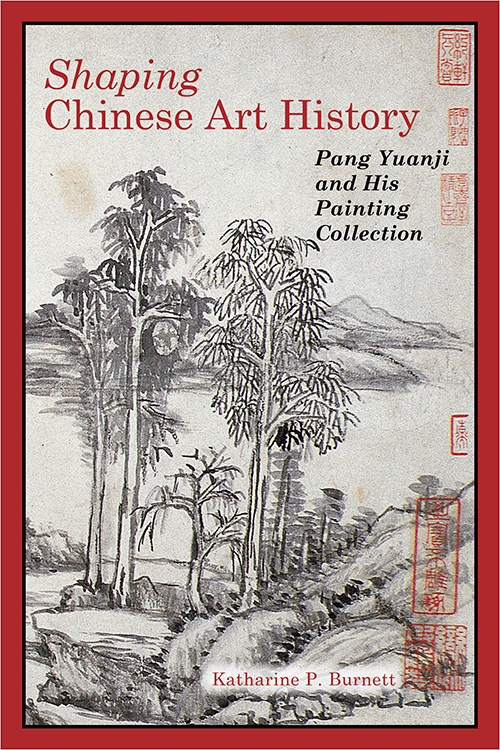
Shaping Chinese Art History
Art history professor Katharine Burnett examines how art collector Pang Yuanji's taste has had a long-standing and ongoing impact on Chinese art museum collections and research around the globe. In Shaping Chinese Art History: Pang Yuanji and His Painting Collection (Cambria Press, September 2020), Burnett analyzes the approach that Pang (1864-1949) used to build a collection, how that compared to other collectors, and how this knowledges helps in understanding current Chinese art history.

Anxious China
The breathless pace of China’s economic reform has brought about deep ruptures in socioeconomic structures and people’s inner landscape. Faced with increasing market-driven competition and profound social changes, more and more middle-class urbanites are turning to Western-style psychological counseling to grapple with their mental distress. Anxious China (University of California Press, August 2020) by Li Zhang, professor of anthropology, offers an in-depth ethnographic account of how an unfolding “inner revolution” is reconfiguring selfhood, psyche, family dynamics, sociality and the mode of governing in post-socialist times. Received honorable mention in the Society for Humanistic Anthropology's 2021 Victor Turner Prize in Ethnographic Writing competition. Recommended by The Economist as one of six books to help understand China’s domestic challenges.

Digging the Past
Digging the Past: How and Why to Imagine Seventeenth-Century Agriculture (University of Pennsylvania Press, August 2020), by English professor Frances Dolan, examines histories of food and work, science, and reading and writing practices to offer case studies of projects heralded as agricultural innovations in the 17th century and today, such as composting and soil amendment, local food, natural wine and hedgerows.
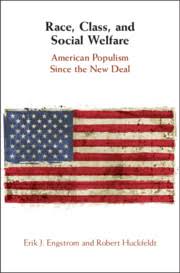
Race, Class, and Social Welfare
In Race, Class, and Social Welfare: American Populism Since the New Deal (Cambridge University Press, July 2020), Professor Erik Engstrom and Distinguished Professor Emeritus Robert Huckfeldt — both in the political science department — examine the racial divisions that have fractured the potential for a unified progressive populist movement in the United States.
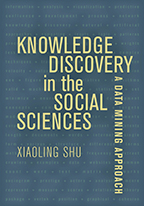
Knowledge Discovery in the Social Sciences
Knowledge Discovery in the Social Sciences: A Data Mining Approach (University of California Press, February 2020) by Xiaoling Shu, professor of sociology, introduces readers to methods for analyzing big data — skills that are in growing demand in both academia and industry jobs.
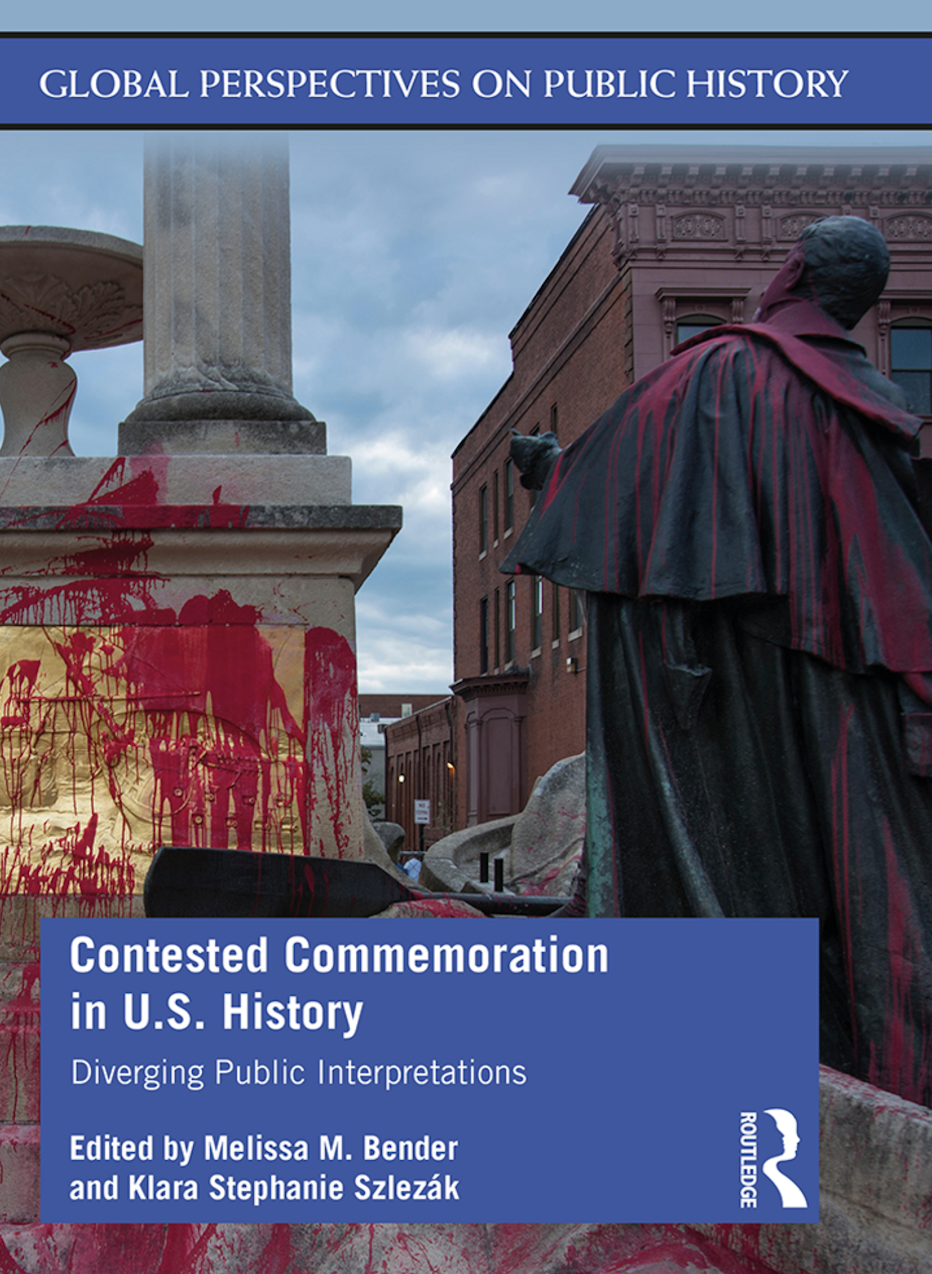
Contested Commemoration in U.S. History: Diverging Public Interpretations
As the movement to remove monuments to slaveholders and imperialists from public spaces gains traction, Contested Commemoration (Routledge, June 2020) is a timely collection of essays co-edited by University Writing Program continuing lecturer Melissa M. Bender. The essays raise questions about how well the U.S. has come to terms with the more controversial episodes of its history through commemorative acts.
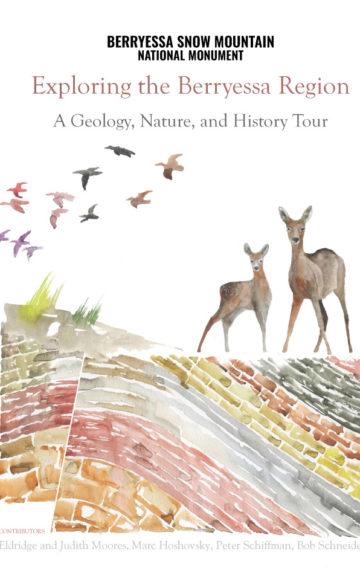
Exploring the Berryessa Region
Exploring the Berryessa Region (Backcountry Press, June 2020) tells the story of the southern end of the Berryessa Snow Mountain National Monument, a region rich in geologic and biologic diversity. Full of fascinating details, the book helps visitors explore the Berryessa Region by car. Authors include the late UC Davis professor emeritus Eldridge Moores and his wife Judy Moores, naturalist Marc Hoshovsky, UC Davis professor emeritus Peter Schiffman and UC Davis alumnus Bob Schneider.
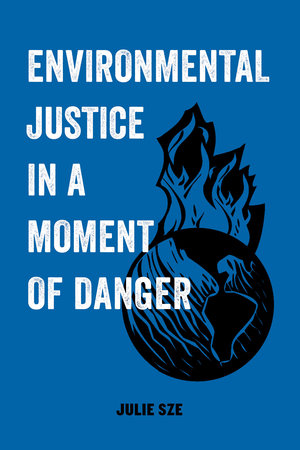
Environmental Justice in a Moment of Danger
Environmental Justice in a Moment of Danger (University of California Press, January 2020), by American studies professor Julie Sze, examines mobilizations and movements from protests at Standing Rock to activism in Puerto Rico in the wake of Hurricane Maria. The book looks at dispossession, deregulation, privatization and inequality with cautiously hopeful stories.

Pure Filth: Ethics, Politics, and Religion in Early French Farce
French farce from the Middle Ages has long been dismissed as worthless and vulgar. In Pure Filth: Ethics, Politics, and Religion in Early French Farce (University of Pennsylvania Press, December 2019), French and comparative literature professor Noah Guynn shows that beneath the superficial crudeness and predictability can be found finely drawn, and sometimes quite radical, perspectives on ethics, politics and religion.
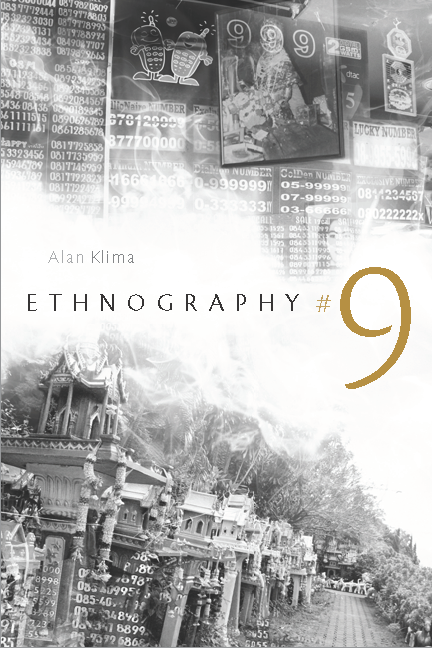
Ethnography #9
Written in a literary style of storytelling, Ethnography #9 (Duke University Press, November 2019), by anthropology professor Alan Klima, examines moneylending, gambling, funeral casinos and the consultation of spirits and mediums to predict winning lottery numbers. Co-winner of the 2020 Gregory Bateson Prize, presented by the Society for Cultural Anthropology.
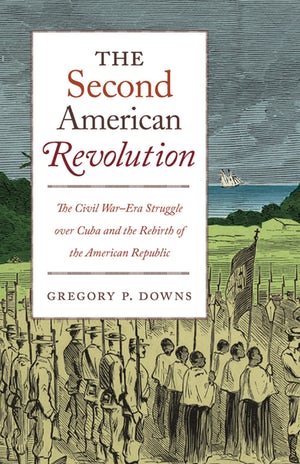
The Second American Revolution
In The Second American Revolution (University of North Carolina Press, October 2019), history professor Gregory Downs argues that we can see the Civil War anew by understanding it as a revolution. More than a fight to preserve the Union and end slavery, the conflict refashioned a nation, in part by remaking its Constitution. More than a struggle of brother against brother, it entailed remaking an Atlantic world that centered in surprising ways on Cuba and Spain.
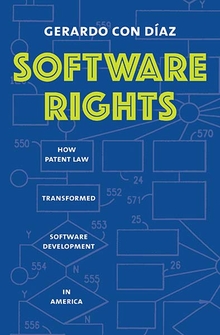
Software Rights
The first comprehensive history of software patenting, Software Rights (Yale University Press, October 2019) explores how patent law made software development the powerful industry that it is today. Author Gerardo Con Díaz, assistant professor of science and technology studies, reveals how patent law has transformed the ways computing firms make, own, and profit from software.
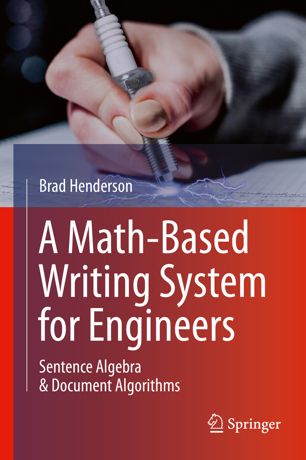
A Math-Based Writing System for Engineers
A Math-Based Writing System for Engineers: Sentence Algebra and Document Algorithms (Springer Nature, October 2019) offers students and working professionals a twist on writing education. Author Brad Henderson, a continuing lecturer in the University Writing Program, uses math-based metaphors, equations, symbols and graphics to teach engineers word-based skills.
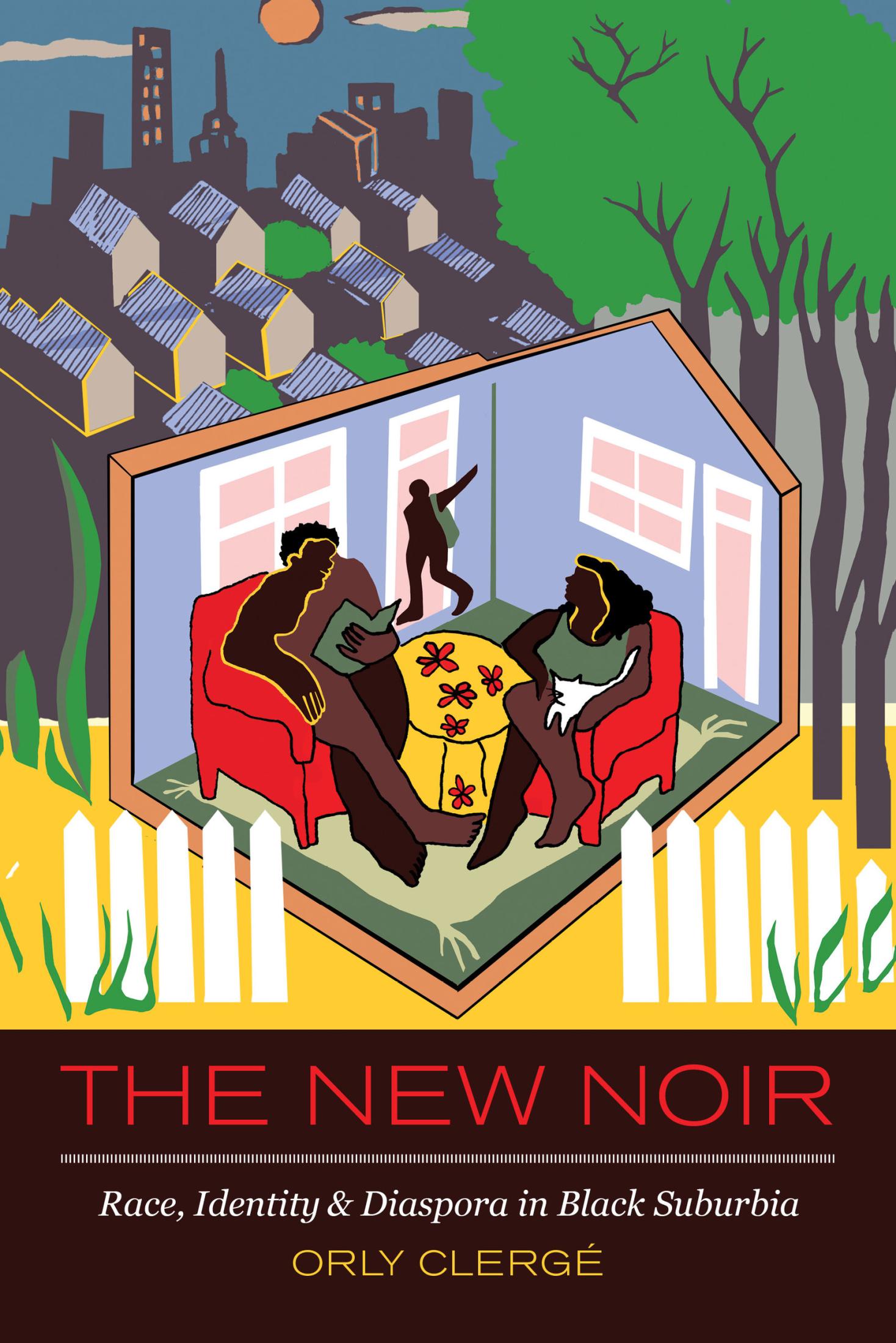
The New Noir
In The New Noir: Race, Identity, and Diaspora in Black Suburbia (University of California Press, October 2019), Orly Clerge, assistant professor of sociology, explores the complex worlds of a generation of Black middle-class adults who have migrated from different corners of the African diaspora to suburban New York. The New Noir is the co-winner of the 2020 Mary Douglas Prize from the American Sociological Society's Section on the Sociology of Culture and was a finalist for the C. Wright Mills Award given by the Society for the Study of Social Problems.
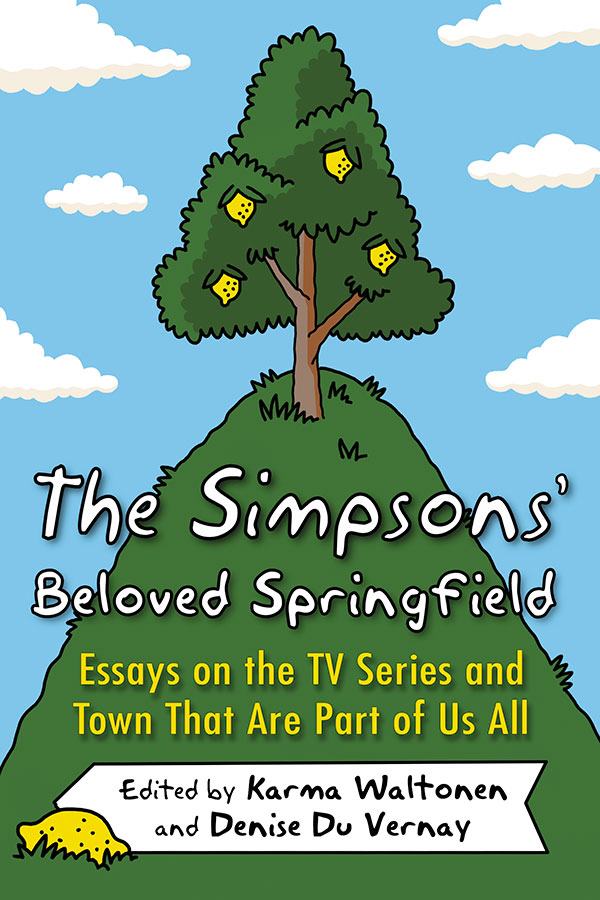
The Simpsons’ Beloved Springfield
In The Simpsons’ Beloved Springfield: Essays on the TV Series and Town That Are Part of Us All (McFarland, September 2019), Karma Waltonen, University Writing Program continuing lecturer, and Denise Du Vernay explore the many ways in which The Simpsons reflects everyday life through its exploration of gender roles, music, death, food politics, science and religion, anxiety, friendship and more.
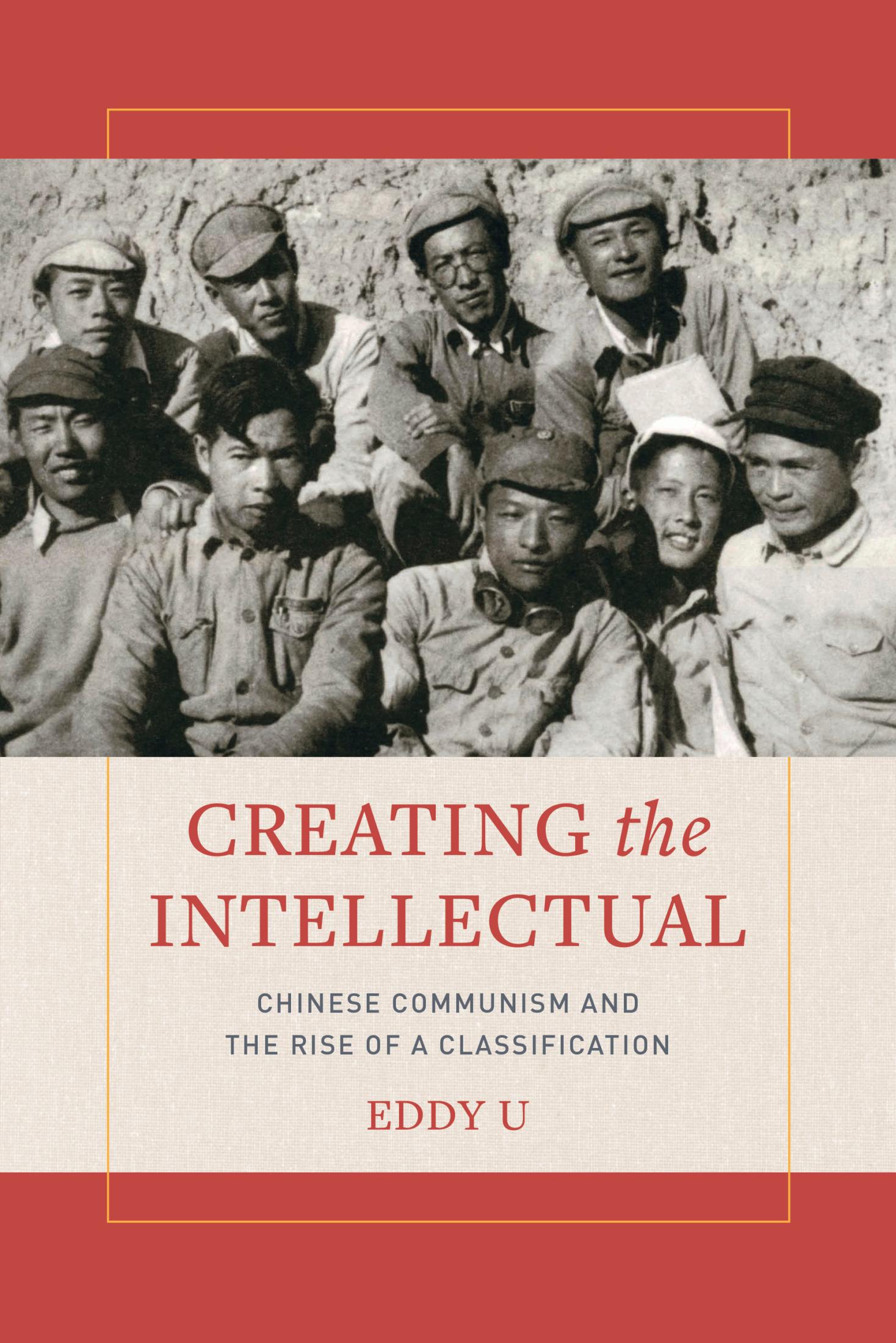
Creating the Intellectual
Creating the Intellectual: Chinese Communism and the Rise of a Classification (University of California Press, April 2019) by Eddy U, professor of sociology, redefines how we understand relations between intellectuals and the Chinese socialist revolution of the last century. The book is the co-winner of the 2020 Barrington Moore Book Award from the Section on Comparative and Historical Sociology.
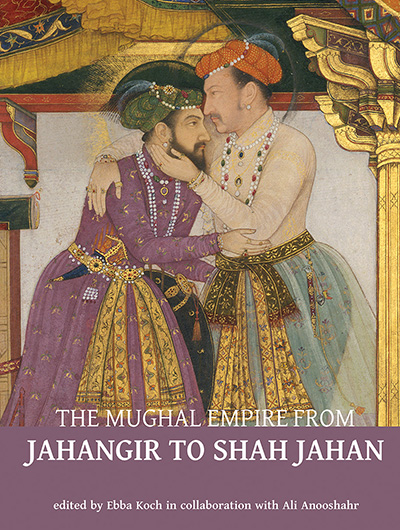
The Mughal Empire from Jahangir to Shah Jahan
The reign of Shah Jahan (1628–58) is widely regarded as the golden age of the Mughal empire, yet it is one of the least studied periods of Mughal history. In this volume (The Marg Foundation, March 2019), edited by Ebba Koch in collaboration with UC Davis history professor Ali Anooshahr, 14 eminent scholars present for the first time a multidisciplinary analysis of Shah Jahan and his predecessor Jahangir.
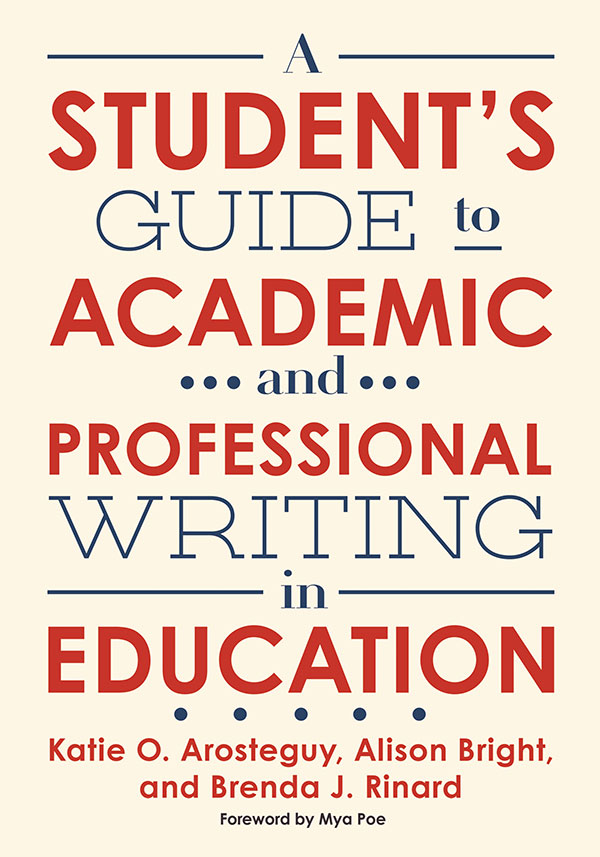
A Student's Guide to Academic and Professional Writing in Education
This concise handbook (Teachers College Press, July 2019), written by University Writing Program faculty Katie Arosteguy, Alison Bright and Brenda Rinard, prepares educators to write for the rhetorical situations they will face as students of education, and as preservice and practicing teachers. It provides clear and helpful advice for responding to the varying contexts, audiences, and purposes that arise in four written categories in education: classroom, research, credential and stakeholder writing.
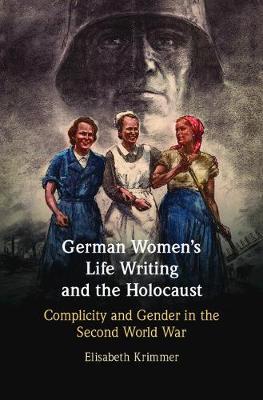
German Women's Life Writing and the Holocaust
In German Women's Life Writing and the Holocaust: Complicity and Gender in the Second World War (Cambridge University Press, March 2019), German professor Elisabeth Krimmer looks at how women's diaries, fiction, memoirs and other writing gives an insight into the complicit bystanders' role in the functioning of the Nazi regime. Chapters on army auxiliaries, nurses, female refugees, rape victims and Holocaust survivors analyze women's motivations for enlisting in the National Socialist cause, as well as for their continuing support for the regime and, in some cases, their growing estrangement from it.
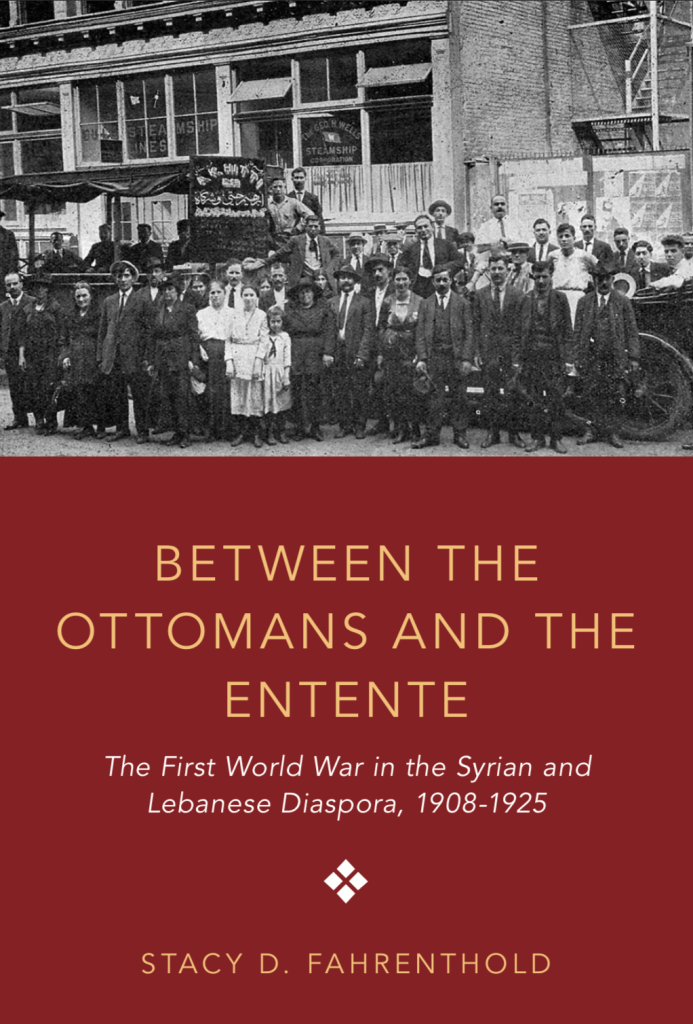
Between the Ottomans and the Entente
This award-winning book by Stacy Fahrenthold, assistant professor of history, illuminates the role that Syrian and Lebanese migrants in the United States and Latin America played in Middle East state formation around the period of World War I. Between the Ottomans and the Entente (Oxford University Press, March 2019) provides context for the flight of millions of Syrian refugees today. This book won a 2020 Evelyn Shakir Non-Fiction Award from the Arab American National Museum.
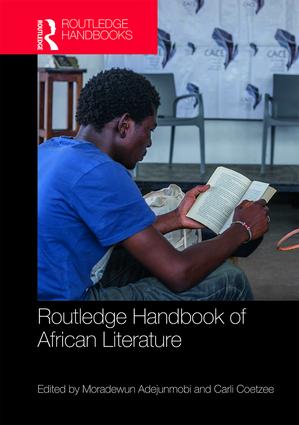
The Routledge Handbook of African Literature
Moradewun Adejunmobi, professor of African American and African Studies, is co-editor of The Routledge Handbook of African Literature (Routledge, Taylor and Francis Group, March 2019). The book is a one-stop publication bringing together studies of African literary texts that embody an array of newer frameworks derived from food studies, utopian studies, network theory, eco-criticism, and examinations of the human/animal interface alongside more familiar discussions of postcolonial politics.
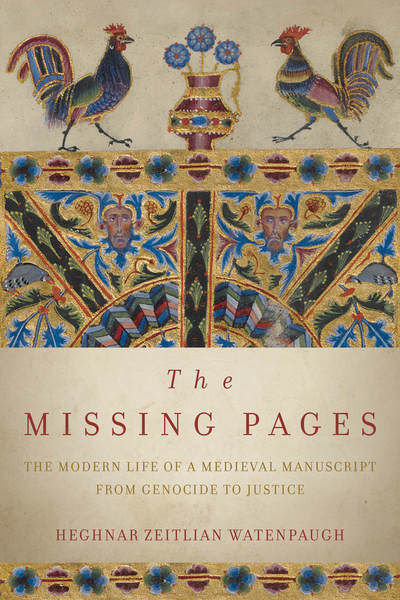
The Missing Pages
Art history professor Heghnar Zeitlian Watenpaugh’s The Missing Pages: The Modern Life of a Medieval Manuscript from Genocide to Justice (Stanford University Press, February 2019) traces eight illustrated pages from a 13th-century Armenian manuscript that disappeared in 1920 to their purchase by the J. Paul Getty Museum in 1995. A 2010 lawsuit against the Getty demanding the pages be returned to the Armenian Church set off her search that is set against larger issues of the Armenian Genocide.

States of Terror: History, Theory, Literature
In States of Terror (University of Chicago Press, March 2019) English Professor David Simpson examines how we have come to use the terms "terror" and "terrorism" to cover a wide range of violent acts, tracking the concept’s long, complicated history across literature, philosophy, political science and theology.
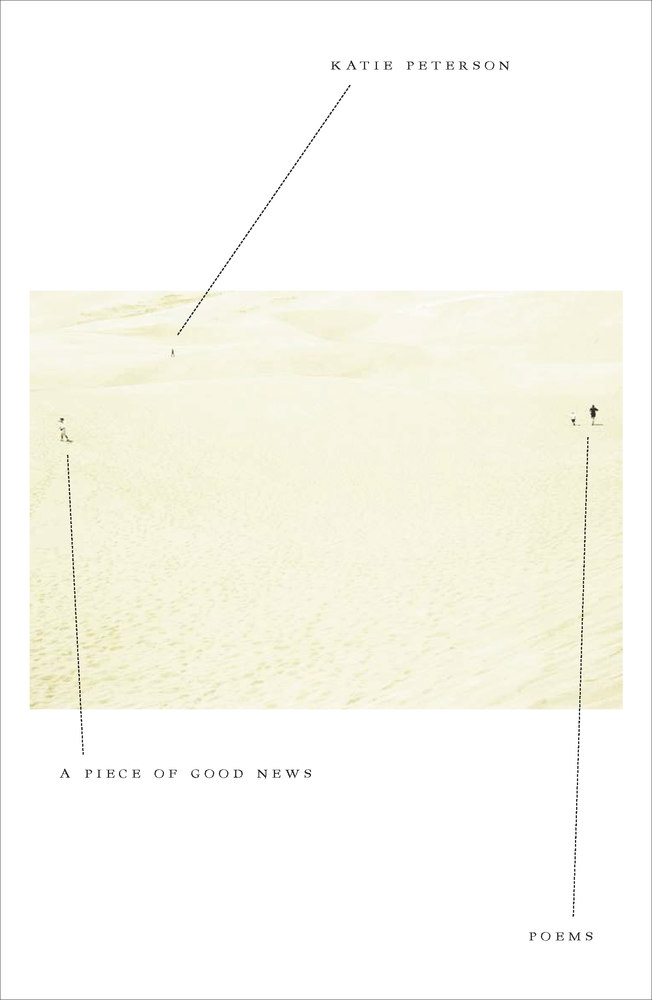
A Piece of Good News: Poems
In her new collection A Piece of Good News (Farrar, Straus and Giroux, February 2019), Katie Peterson, English professor and head of the creative writing program, explores interior and exterior landscapes, exposure and shelter. The poems are powerful meditations of mourning, love, doubt, political citizenship and happiness.
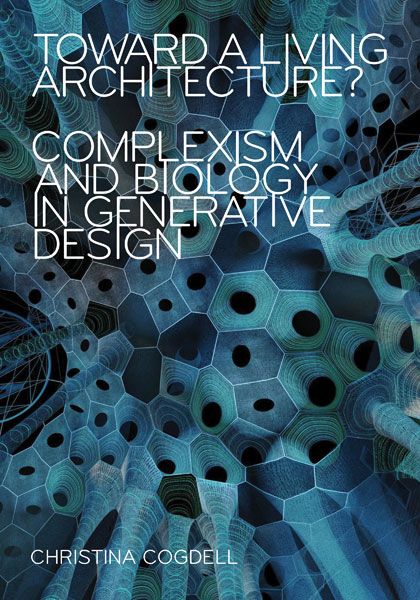
Toward a Living Architecture?
Toward a Living Architecture? Complexism and Biology in Generative Design (University of Minnesota Press, January 2019) by Department of Design Professor Christina Cogdell is the first book to make a critical study of the emerging field of generative architecture and its nexus with computation, biology, and complexity. She evaluates its scientific rhetoric and disjunction from actual scientific theory and practice,
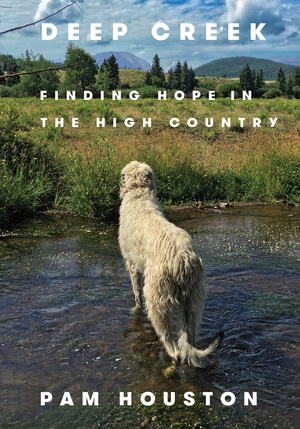
Deep Creek: Finding Hope in the High Country
Deep Creek (W.W. Norton, January 2019) is English professor Pam Houston's collection of essays about living and learning on the Colorado ranch she purchased in 1993. There she learns to care for the land and the creatures living on it and discovers how the natural world has mothered and healed her.
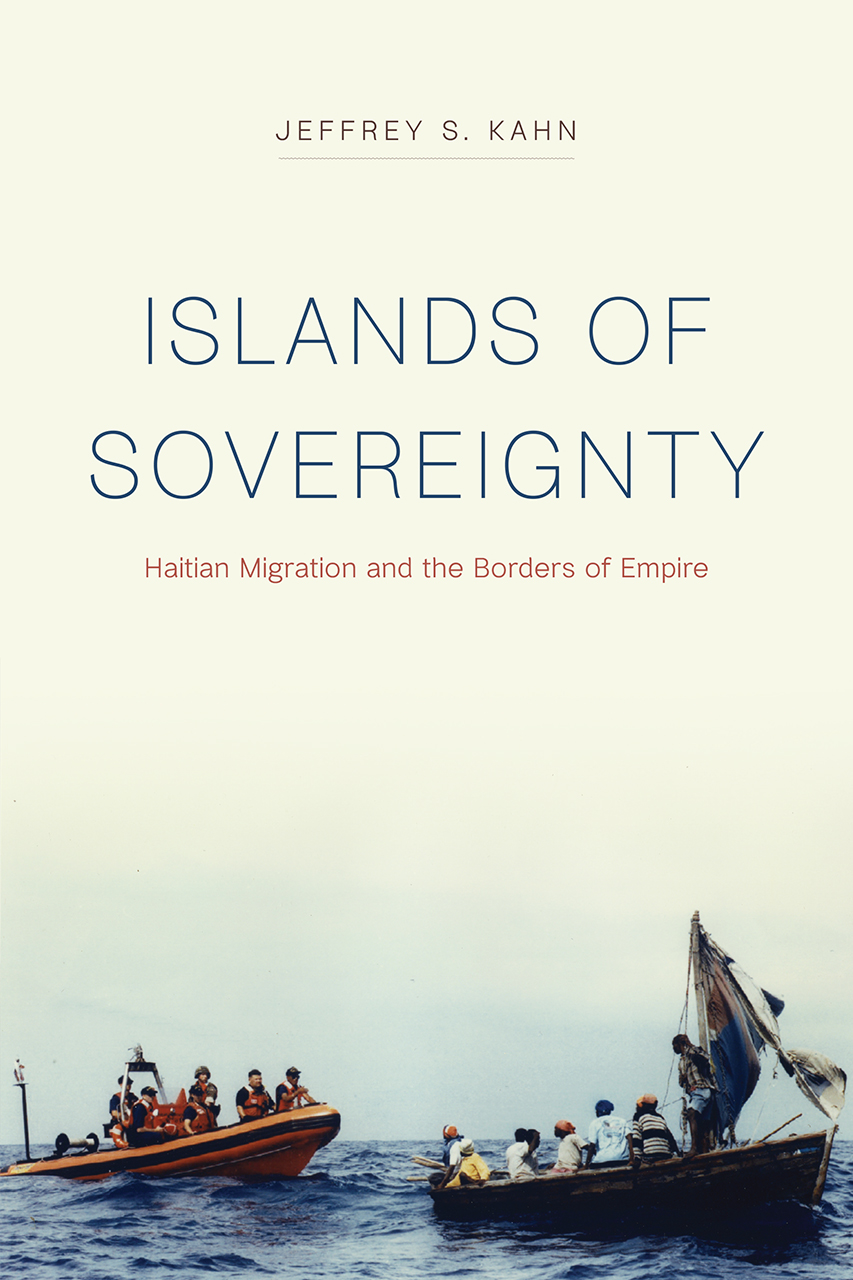
Haitian Refugees and the Making of the US Maritime Border
Islands of Sovereignty: Haitian Migration and the Borders of Empire (University of Chicago Press, January 2019, by Jeffrey Kahn, assistant professor of anthropology, offers a new interpretation of the transformation of U.S. borders during the late 20th century and its implications for our understanding of the nation-state as a legal and political form.
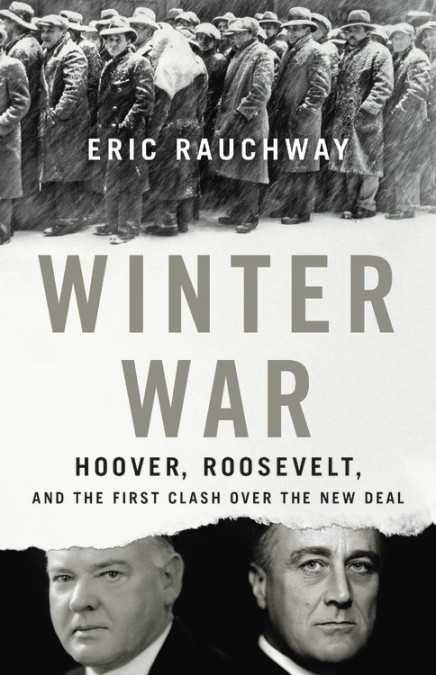
Winter War: Hoover, Roosevelt, and the First Clash Over the New Deal
Winter War (Basic Books, January 2019), by Eric Rauchway, professor of history, shows how Franklin Roosevelt laid out plans for the New Deal in the months before his inauguration and President Herbert Hoover became a critic of the policy — a battle over ideas that shaped the divisive politics of the 20th century.
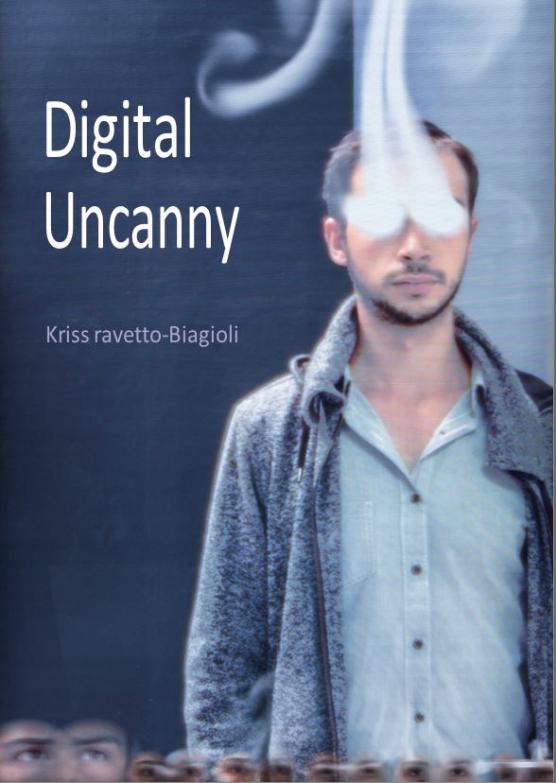
Digital Uncanny
Digital Uncanny (Oxford University Press, January 2019), by Kriss Ravetto-Biagioli, professor of cinema and digital media, looks at a new kind of uncanny experience — how surveillance technologies, algorithms, feedback and data flows anticipate human gestures, emotions, actions and interactions
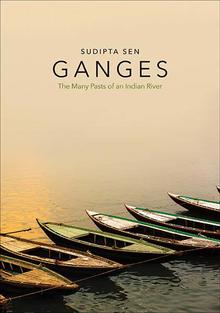
A Portrait of the India's Sacred River
In Ganges: The Many Pasts of an Indian River (Yale University Press, January 2019) history professor Sudipta Sen tells the sweeping history of the world’s third-largest river, a potent symbol across South Asia and the Hindu diaspora.
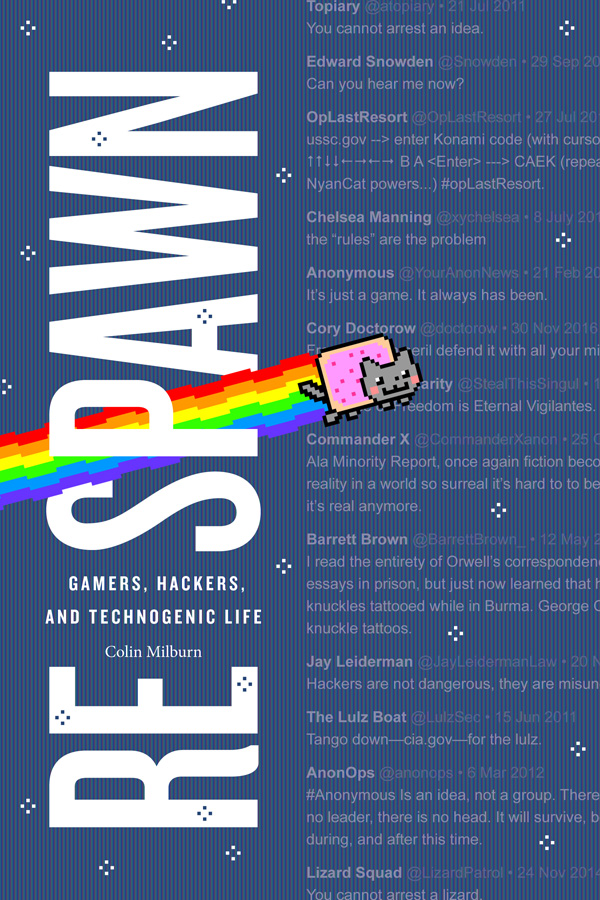
Respawn: Gamers, Hackers, and Technogenic Life
In Respawn (Duke University Press, November 2018) Colin Milburn, Gary Snyder Chair in Science and the Humanities, examines the connections between video games, hacking, and science fiction that galvanize technological activism and technological communities.
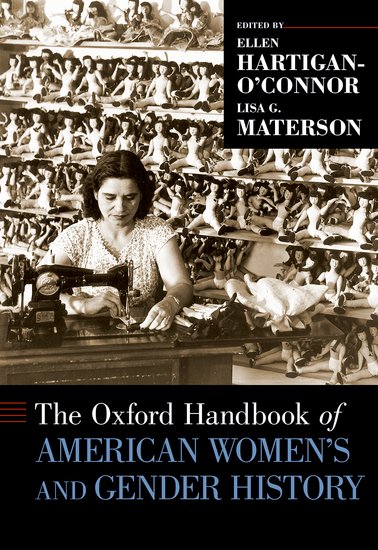
Women and Gender: Remapping US History
The Oxford Handbook of American Women’s and Gender History (Oxford University Press, November 2018), edited by history faculty Ellen Hartigan-O'Connor and Lisa G. Materson, boldly interprets the history of diverse women and how ideas about gender shaped their access to political and cultural power in North America over six centuries. In 29 chapters, leading scholars demonstrate the power of innovative research to excavate a history hidden in plain sight.
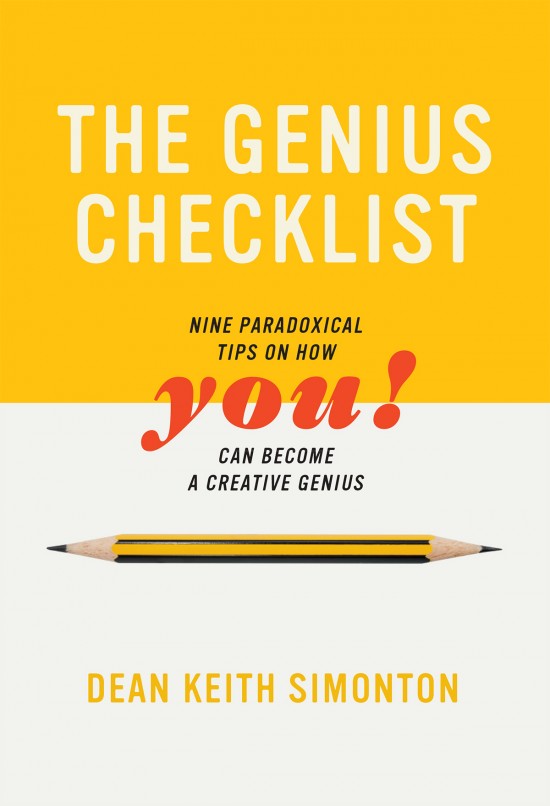
What does it take to be a genius?
The Genius Checklist: Nine Paradoxical Tips on How You Can Become a Creative Genius (MIT Press, October 2018.) Dean Keith Simonton, distinguished professor emeritus of psychology, examines the key factors in creative genius and finds that they are more than a little contradictory. Simonton, who has studied creativity and genius for more than four decades, draws on both scientific research and stories from the lives of famous creative geniuses.
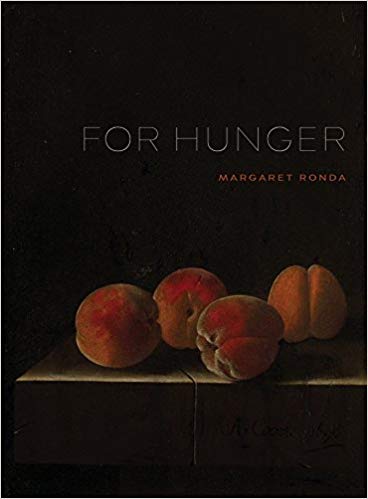
For Hunger
In her second poetry collection, For Hunger (Saturnalia, October 2018), associate professor of English Margaret Ronda offers a fierce look at the interiors of motherhood, examining what it means to become a mother and lose a mother.
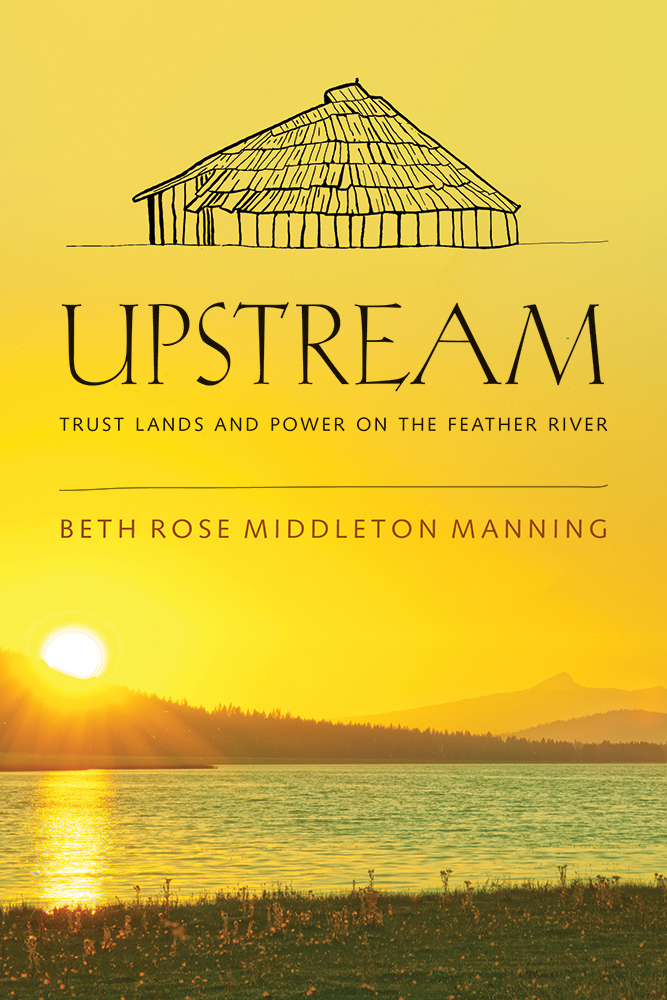
Upstream: Trust Lands and Power on the Feather River
In Upstream: Trust Land and Power on the Feather River (University of Arizona Press, September 2018) Beth Rose Middleton Manning, associate professor of Native American Studies, examines how native land allotments in California were taken over for various hydroelectric power projects with a focus on the Feather River and Native American resistance to such projects.
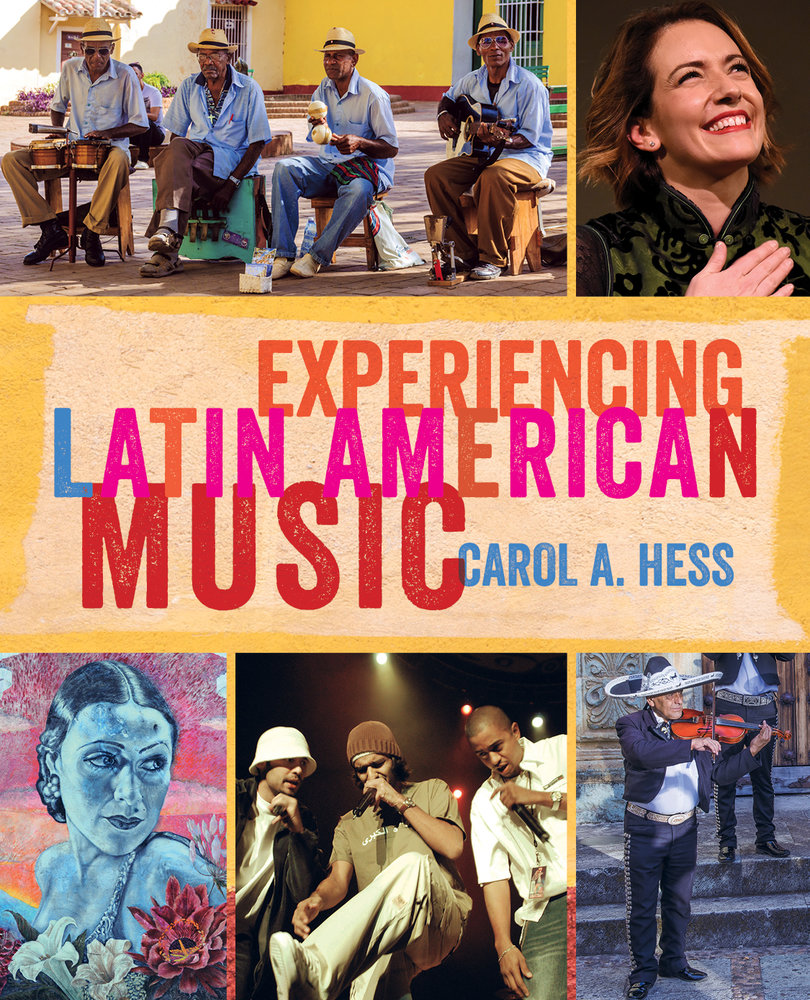
Experiencing Latin American Music
Experiencing Latin American Music (UC Press, August 2018) is a textbook by Carol J. Hess, professor of music, that provides an overview of 50 genres of music and their intersection with identity, the body, religion, and more. A detailed instructor’s packet contains sample quizzes, clicker questions, and creative, classroom-tested assignments designed to encourage critical thinking and spark the imagination.
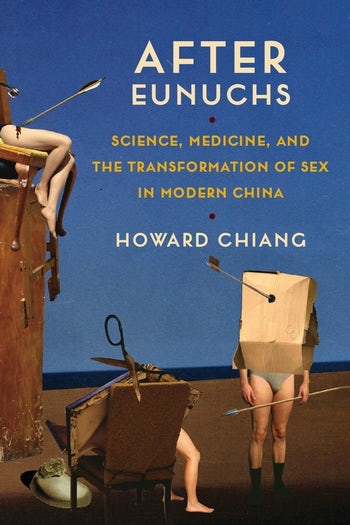
China Trans Formed
After Eunuchs: Science, Medicine, and the Transformation of Sex in Modern China (Columbia University Press, August 2018), by Howard Chiang, assistant professor of history, explores the ways the introduction of Western biomedical sciences transformed normative meanings of gender, sexuality, and the body in China.
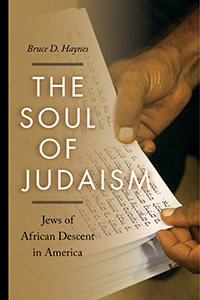
The History of Black Jews in the US
In The Soul of Judaism (NYU Press, August 2018), Bruce D. Haynes, professor of sociology, explores the full diversity of Jews of African descent in America, putting to rest the simplistic notion that Jews are white and that Black Jews are therefore a contradiction.
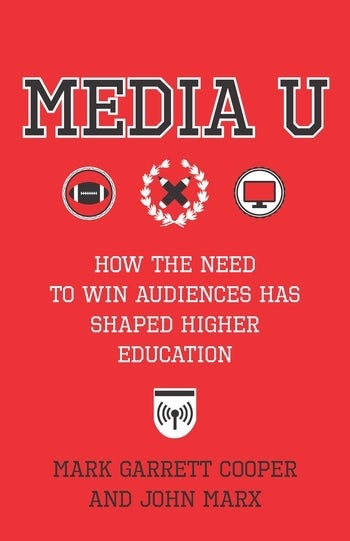
Media U: How the Need to Win Audiences Has Shaped Higher Education
Media U (Columbia University Press, August 2018), co-written by English professor John Marx, presents a provocative rethinking of the development of American higher education centered on the insight that universities are media institutions. Tracing over a century of media history and the academy, Marx and Mark Garrett Cooper argue that the fundamental goal of the American research university has been to cultivate audiences and convince them of its value and shows how universities have appropriated new media technologies to convey their message about higher education.
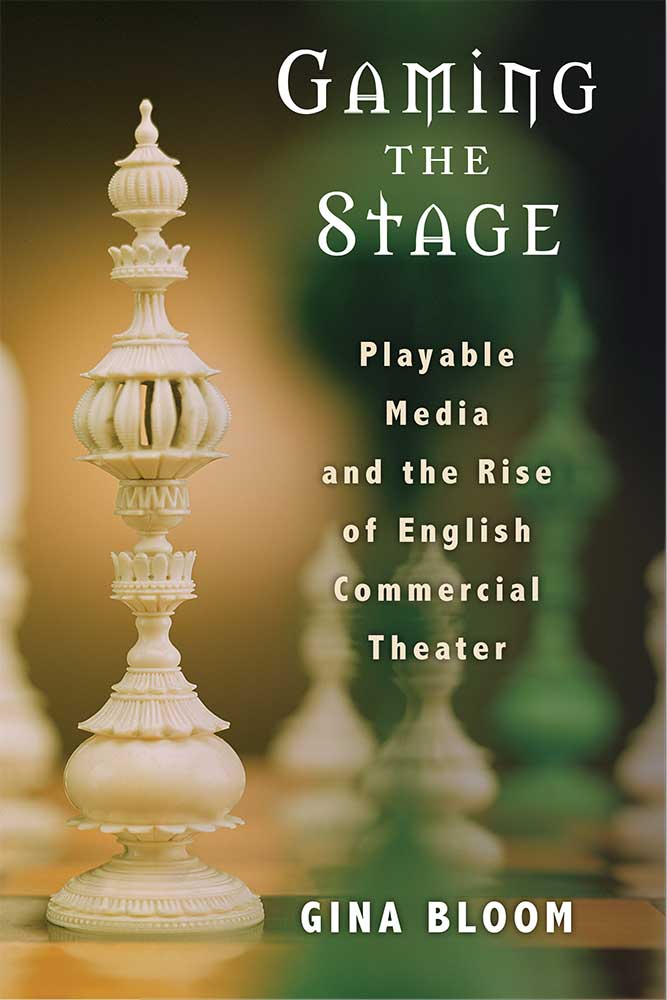
Gaming the Stage: Playable Media and the Rise of English Commercial Theater
Gaming the Stage (University of Michigan Press, July 2018) by English professor Gina Bloom explains that theaters succeeded in London's 16th- and 17th-century entertainment marketplace largely because watching a play and playing a game were similar experiences. Audiences were encouraged to "play the play," and knowledge of gaming helped them become better theatergoers. Examining dramas written for these theaters alongside evidence of analog games popular then and today, Bloom argues for games as theatrical media and theater as an interactive gaming technology.
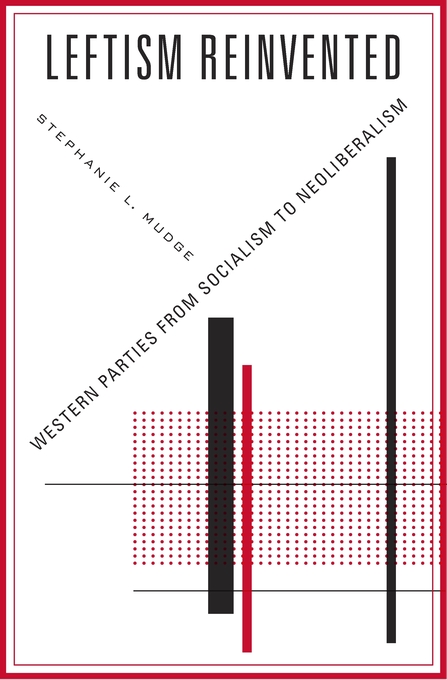
What Happened to the Left?
Leftism Reinvented (Harvard University Press, June 2018), by Stephanie Mudge, associate professor of sociology, analyzes the history of the Swedish and German Social Democrats, the British Labour Party, and the American Democratic Party. Tracing their shift away from promising protections for the poor and disenfranchised, the book raises new questions about the roles and responsibilities of left-leaning parties — and their experts — in politics today.
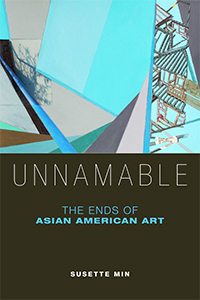
Unnamable: The Ends of Asian American Art
Susette Min, associate professor of Asian-American studies, takes a critical look at how the definitions of Asian-American art stifle more than it reveals in Unnamable: The Ends of Asian American Art. (NYU Press, June 2018)
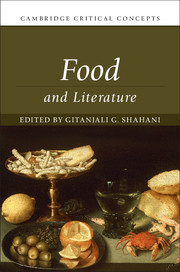
Food and Literature
Frances Dolan, distinguished professor of English, Parama Roy, professor of English, and Sandra Gilbert, professor emerita of English, are contributors to Food and Literature (Cambridge University Press, June 2018). The book examines food as subject, form, landscape, polemic and aesthetic statement in literature. It is the first volume to offer an overview of literary food studies and reflect on its origins, developments and applications.
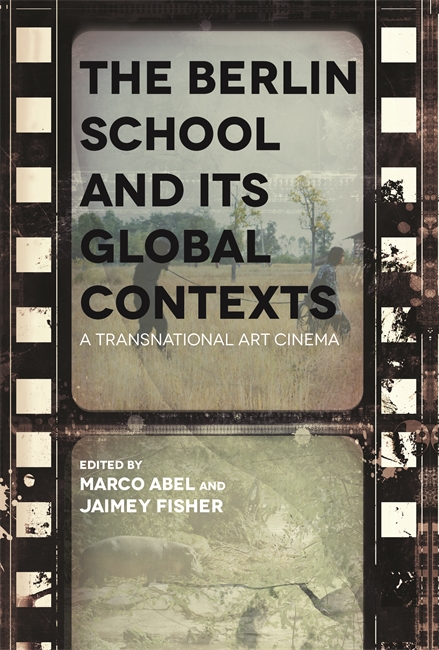
The Berlin School and Its Global Contexts: A Transnational Art-Cinema Title
Jaimey Fisher, professor of German and cinema and digital media as well as the director of the UC Davis Humanities Institute, co-edited The Berlin School (Wayne State University Press, June 2018) that examines the Berlin School as a fundamental part of the series of new wave films around the globe, especially those from the traditional margins of world cinema.
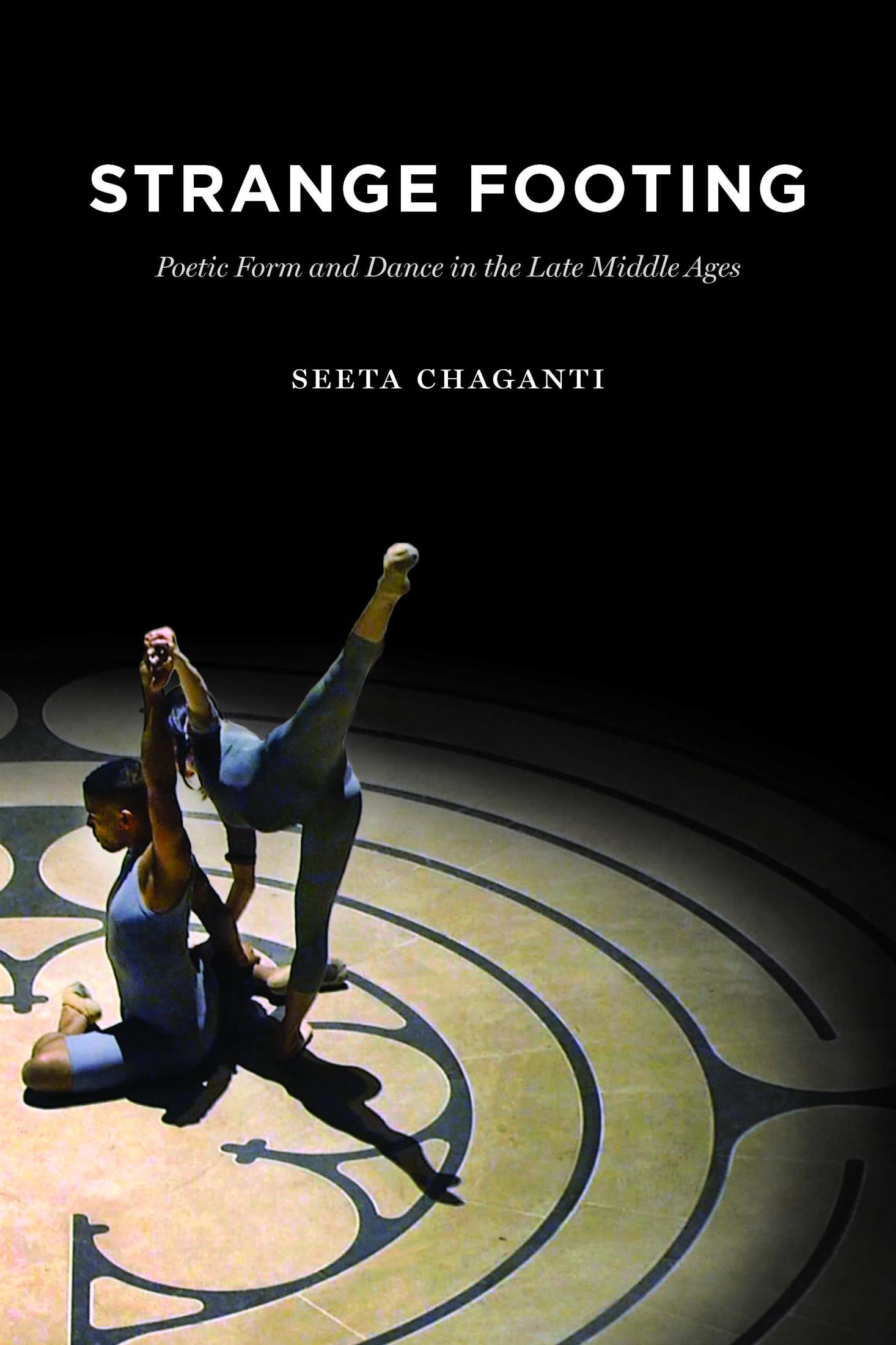
Strange Footing: Poetic Form and Dance in the Late Middle Ages
In Strange Footing: Poetic Form and Dance in the Late Middle Ages (University of Chicago, May 2018), Seeta Chaganti, associate professor of English, explores the complex relationship between medieval dance and medieval poetry, arguing that the intersection of texts and dance produced an experience of poetic form based in disorientation, asymmetry, and even misstep.
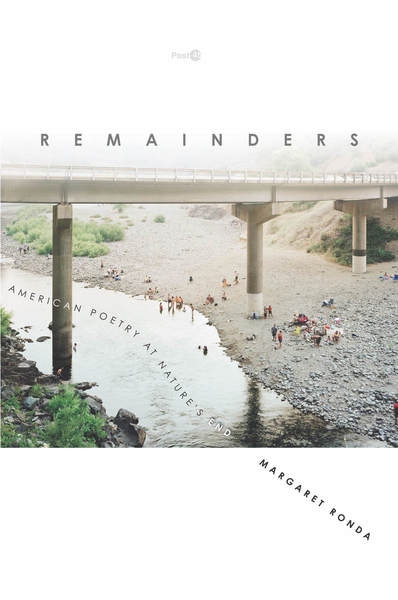
Poetry of Garbage, Atmospheric Pollution and Melting Glaciers
Remainders: American Poetry at Nature's End (Stanford University Press, March 2018) by assistant professor of English Margaret Ronda is a literary history of postwar American poetry that reflects on new dimensions of ecological crisis. These poems portray various forms of remainders that convey the ecological consequences of global economic development.
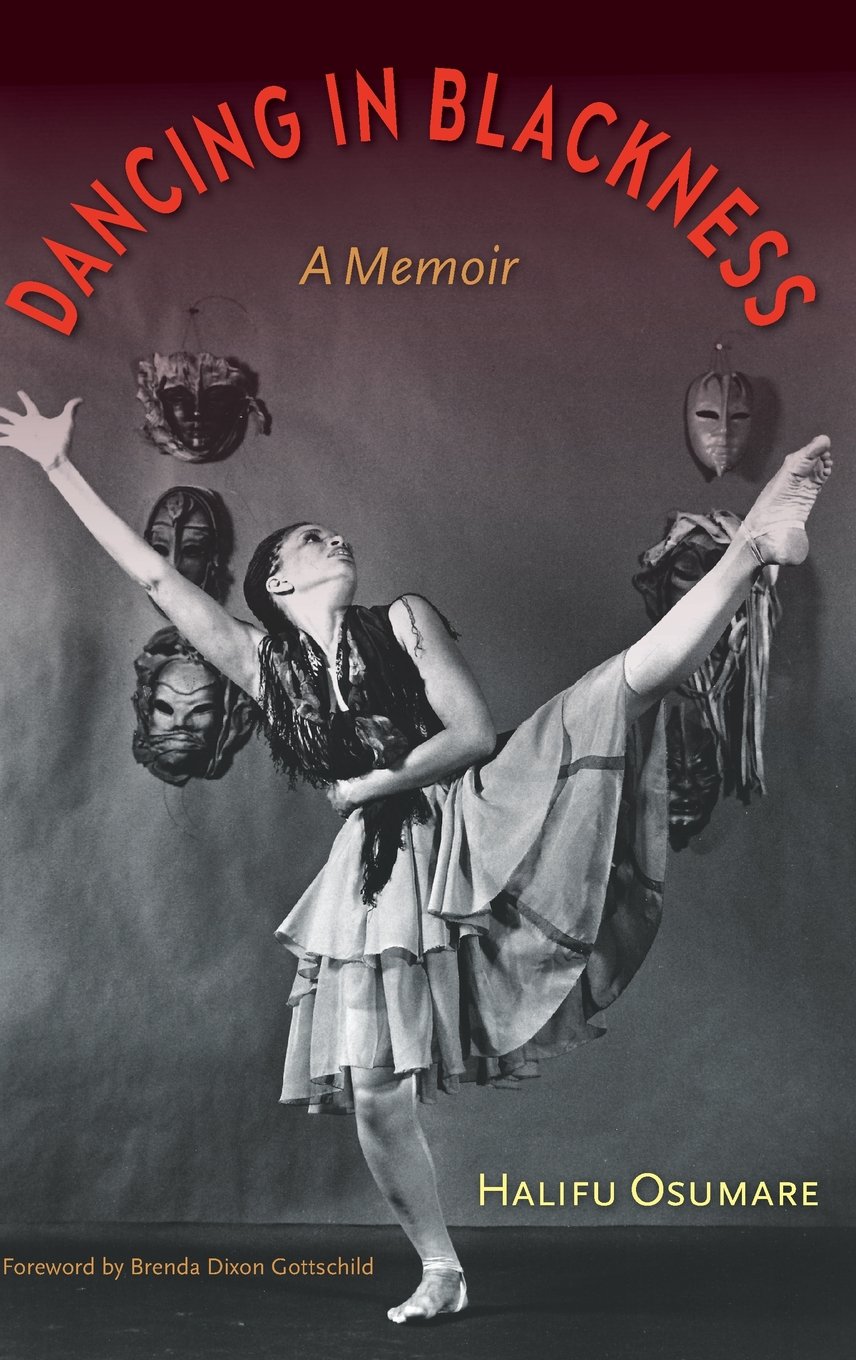
Dancing in Blackness
Dancing in Blackness: A Memoir (University of Florida Press, March 2018) by Halifu Osuamare, emeritus professor of African and African American Studies, is a professional dancer’s personal journey over four decades, across three continents, through defining moments in the story of black dance in America, and how dance has been a vital tool in the black struggle for recognition, justice, and self-empowerment.

X-ray Nanochemistry: Concepts and Development
X-ray Nanochemistry: Concepts and Development (Springer, 2018). Ting Guo, professor of chemistry, describes the latest developments in the new research discipline of X-ray nanochemistry, which uses nanomaterials to enhance the effectiveness of X-ray irradiation.

Quantum Physics, Mini Black Holes, and the Multiverse: Debunking Common Misconceptions in Theoretical Physics (Multiversal Journeys)
Quantum Physics, Mini Black Holes, and the Multiverse: Debunking Common Misconceptions in Theoretical Physics (Springer, February 2018) by John Terning, professor of physics, with Yasunori Nomura and L. William Poirier. This book explores, explains and debunks some common misconceptions about quantum physics, particle physics, space-time, and Multiverse cosmology. The material is presented in layperson-friendly language, followed by additional technical sections which explain basic equations and principles.
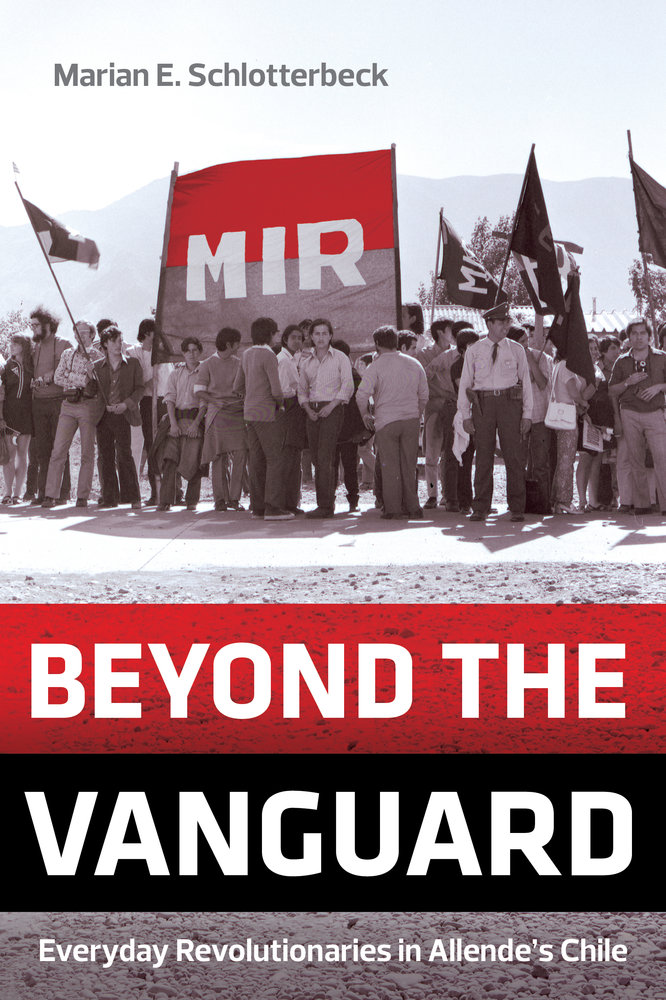
Legacy of a Revolution
Beyond the Vanguard: Everyday Revolutionaries in Allende's Chile (University of California Press, May 2018). Marian Schlotterbeck, assistant professor of history, explores popular politics in Chile in the decade before Augusto Pinochet’s dictatorship and provides an in-depth account of how working-class people transformed the existing social order by embracing radical politics.
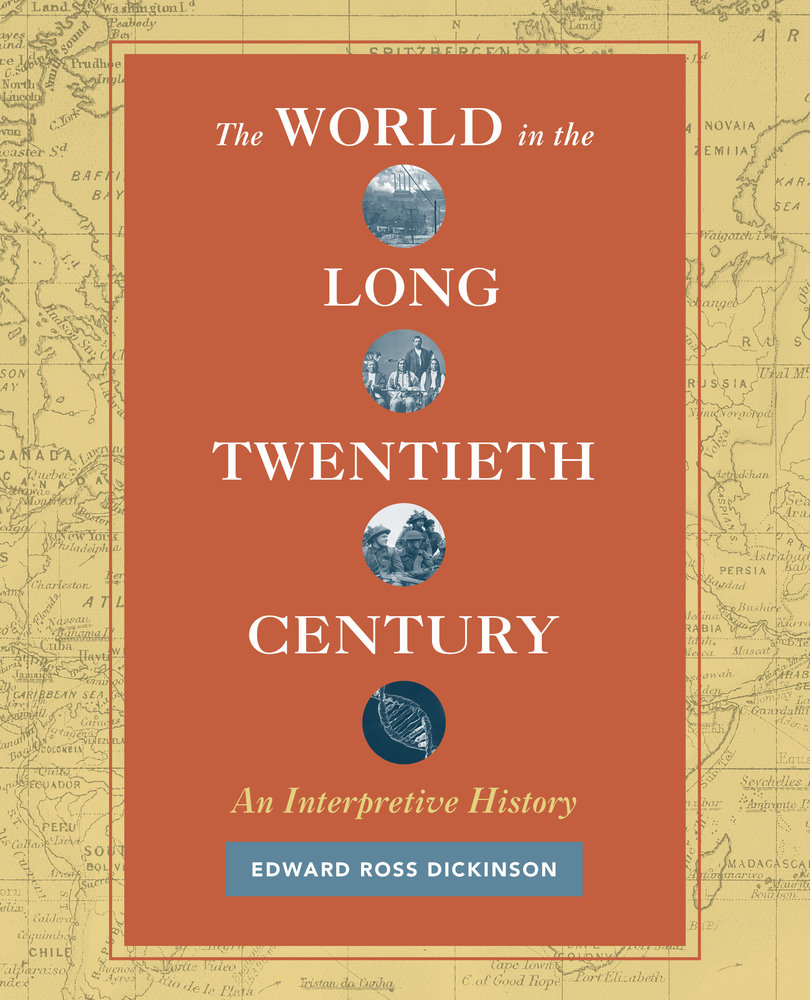
The Making of the Modern World
The World in the Long Twentieth Century: An Interpretive History (University of California Press, January 2018) by Edward Dickinson, professor of history, explores the political and economic upheavals, technological advances, and environmental transformations that have reshaped the world.
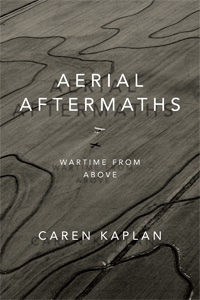
Aerial Aftermaths: Wartime from Above
In Aerial Aftermaths (Duke University Press, January 2018), Caren Kaplan, professor of American studies, traces the history of aerial imagery and how aerial views operate as a form of world-making tied to the times and places of war, from England's surveys of Scotland following the defeat of the 1746 Jacobite rebellion to images taken in the immediate aftermath of 9/11.
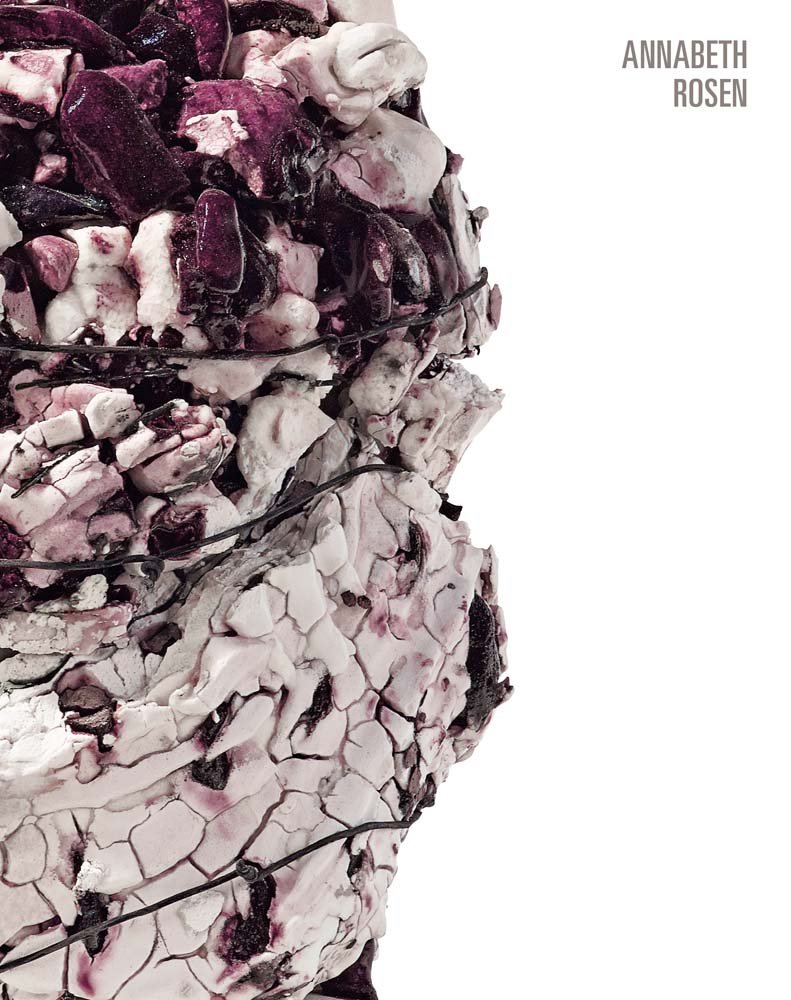
Annabeth Rosen: Fired, Broken, Gathered, Heaped
Annabeth Rosen: Fired, Broken, Gathered, Heaped (Contemporary Arts Museum, Houston, November 2017) is the companion catalog to the first retrospective by Rosen, the Robert Arneson Endowed Chair in the department of art and art history.
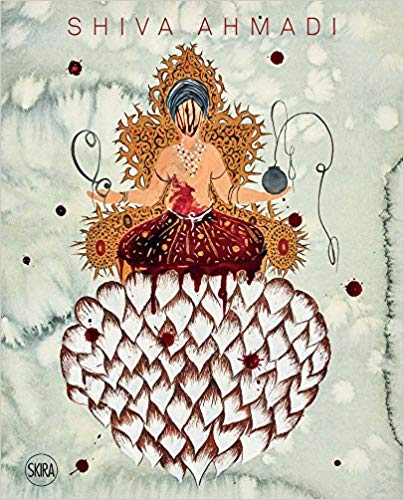
Shiva Ahmadi
This heavily illustrated book (Skira, July 2017) explores the art of Shiva Ahmadi, associate professor of art, with an essay by Talinn Grigor, professor of art history. Ahmadi's work is in collections of major museums around the world, including the Metropolitan Museum of Art, the Asia Society and the Los Angeles County Museum of Art.
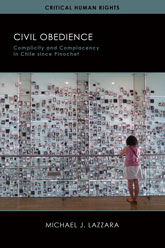
Civil Obedience
Civil Obedience: Complicity and Complacency in Chile since Pinochet (University of Wisconsin Press, Spring 2017). Michael J. Lazzara, associate professor of Spanish, argues that today's Chile is a product of both complicity and complacency. Combining historical analysis with deft literary, political, and cultural critique, he scrutinizes the post-Pinochet rationalizations made by politicians, artists, intellectuals, bystanders, former revolutionaries-turned-neoliberals, and common citizens.
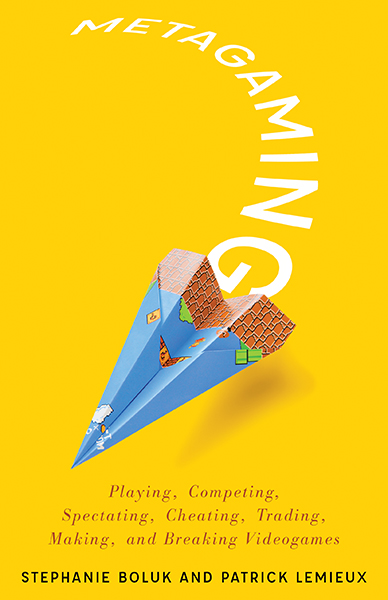
Metagaming
Metagaming: Playing, Competing, Spectating, Cheating, Trading, Making, and Breaking Videogames (University of Minnesota Press, September 2017) by Stephanie Boluk, assistant professor of English and cinema and digital media, and Patrick LeMieux, assistant professor in cinema and digital media, delves into alternative histories of play and demonstrates how games extend beyond the screen, and how modders, mappers, streamers, spectators, analysts, and artists are changing the way we play.
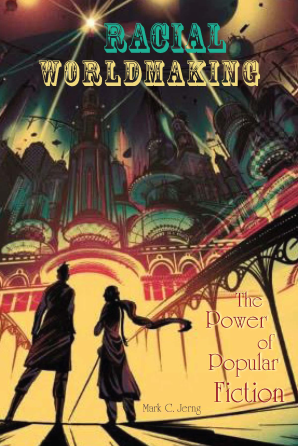
Racial Worldmaking
Racial Worldmaking: The Power of Popular Fiction (Fordham University Press, 2017) by Mark Jerng, professor of English, looks at the writing of H.G. Wells, Margaret Mitchell, Samuel Delany, Philip K. Dick to rethink how scholars have addressed racial formation in relation to both African American and Asian American studies, as well as how scholars have addressed the relationships between literary representation and racial ideology.

Beyond Tordesillas
Beyond Tordesillas: New Approaches to Comparative Luso-Hispanic Studies (Ohio State University Press, October 2017), co-edited by Robert Patrick Newcomb, associate professor, Department of Spanish and Portuguese, consolidates work being done on the connections between the Spanish- and Portuguese-speaking worlds on both sides of the Atlantic.
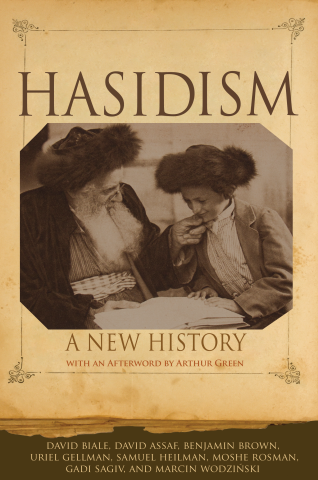
A Movement That Shaped Modern Judaism
Hasidism: A New History (Princeton University Press, December 2017), by UC Davis College of Letters and Science's David Biale, the Emanuel Ringelblum Distinguished Professor of Jewish History, with David Assaf, Benjamin Brown, Uriel Gellman, Samuel Heilman, Moshe Rosman, Gadi Sagiv and Marcin Wodzinski. The first comprehensive history of Hasidism, this book demonstrates that, far from being a throwback to the Middle Ages, the pietistic movement is a product of modernity that forged its identity as a radical alternative to the secular world.
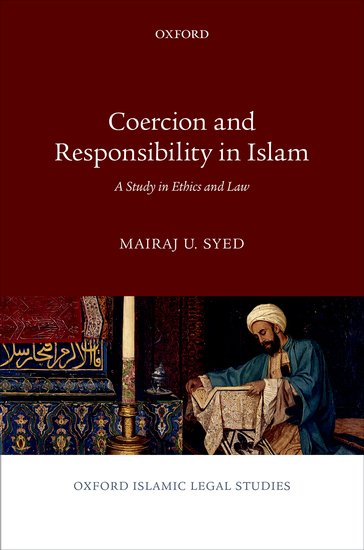
Coercion and Responsibility in Islam
Coercion and Responsibility in Islam: A Study in Ethics and Law (Oxford University Press, 2017) by Mairaj Syed, associate professor of religious studies, explores how classical Muslim theologians and jurists from four intellectual traditions argue about the thorny issues that coercion raises about responsibility for one's action.
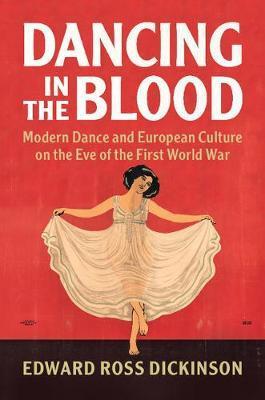
The Revolutionary Impact of Modern Dance
Dancing in the Blood: Modern Dance and European Culture on the Eve of the First World War (Cambridge University Press, July 2017), by Edward Dickinson, professor and chair of the Department of History. The author uncovers connections between modern dance and changing gender relations and family dynamics, imperialism, racism and cultural exchanges with the wider non-European world, and new conceptions of selfhood.
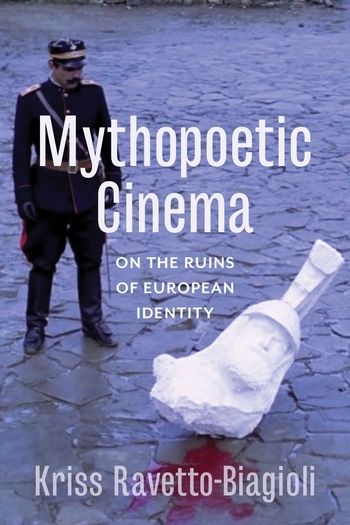
How the Cinema Reimagines Traditional Europe
Mythopoetic Cinema: On the Ruins of European Identity (Columbia University Press, 2017) by Kriss Ravetto-Biagioli, professor of cinema and digital media, gives a close reading of such films as Alexander Sokurov’s "Russian Ark" (2002) and Jean-Luc Godard’s "Notre Musique" (2004), and demonstrates the ways in which the filmmakers engage and evaluate the recent reconceptualization of Europe’s borders, mythic figures and identity paradoxes.

Misplaced Fears Undermine Our Beliefs
Jumping at Shadows: The Triumph of Fear and the End of the American Dream (Nation Books, 2017) by Sasha Abramsky, a lecturer in the University Writing Program, sets out to uncover what things frighten us most: from terrorist attacks to illegal immigrants to the Zika virus, and posits why our fears are in many cases misplaced; how this hysteria is often based on issues of race, segregation, class and inequality; and how we cannot let it define us.
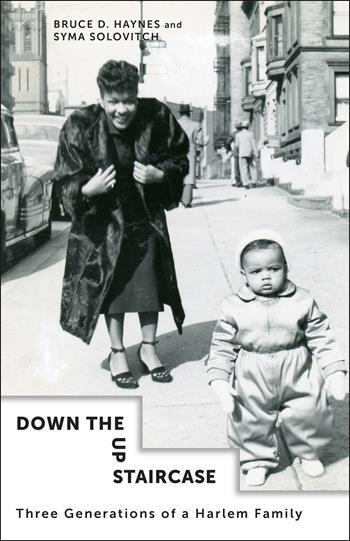
Sociologist Tells Story of His Family in 'Down the Up Staircase'
Down the Up Staircase: Three Generations of a Harlem Family (Columbia University Press, 2017), by Bruce D. Haynes, professor of sociology, with Syma Solovitch. This memoir tells Haynes’ family story—beginning with his grandparents, National Urban League co-founder George Edmund Haynes and children’s book author Elizabeth Ross Haynes.
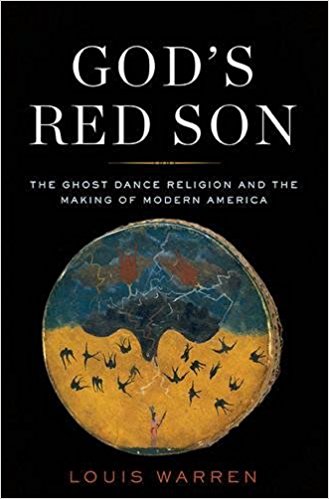
The History of the Ghost Dance Religion Retold
God's Red Son: The Ghost Dance Religion and the Making of Modern America (Basic Books, 2017), by Louis Warren, W. Turrentine Jackson Professor of U.S. Western History. This book offers a startling new view of the religion known as the Ghost Dance, from its origins in the visions of a Northern Paiute named Wovoka to the Army's killing of more than 200 Lakota Sioux at Wounded Knee Creek in South Dakota.
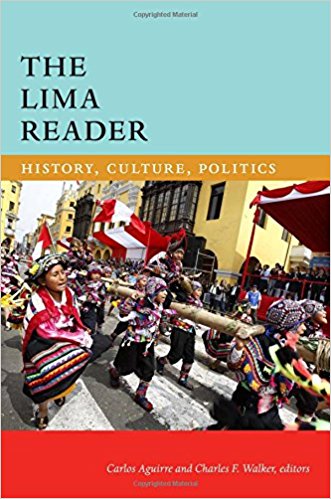
Book Traces History of Peru
The Lima Reader: History, Culture, Politics (Duke University Press, 2017), edited by Charles Walker, professor of history, with Carlos Aguirre. Covering more than 500 years of history, culture, and politics, this volume captures the multiple viewpoints of the diverse peoples of Peru’s capital city. The volume traces Lima’s transformation from a pre-Columbian religious center, to the colonial “City of Kings,” to today's vibrant and deeply divided metropolis of almost ten million people.
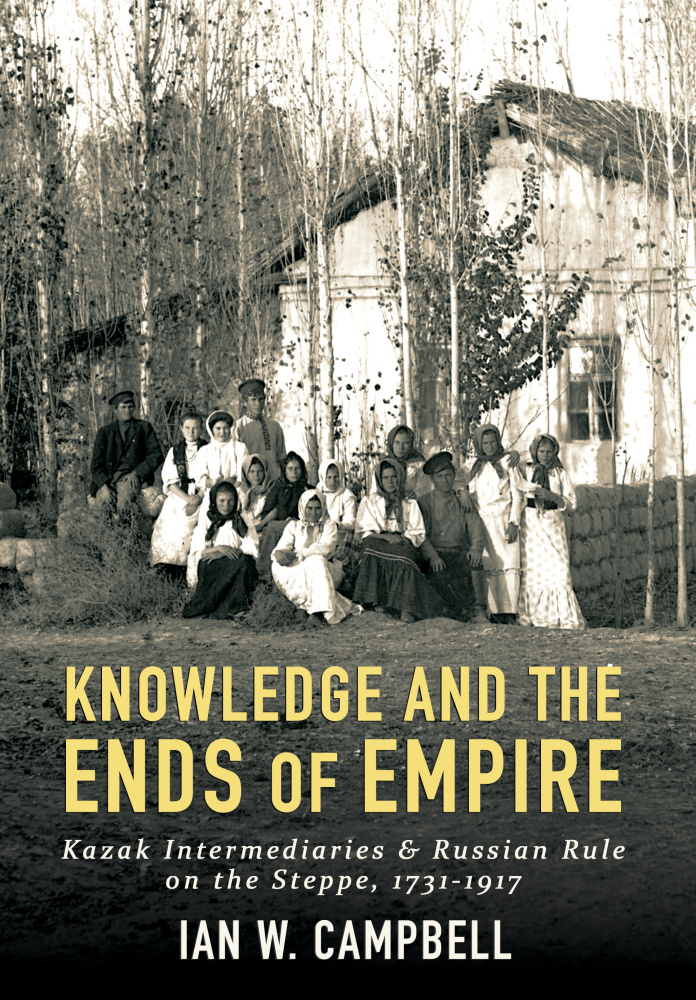
Historian Explores Power of Information in Russian Rule on the Steppe
Knowledge and the Ends of Empire: Kazak Intermediaries and Russian Rule on the Steppe, 1731-1917 (Cornell University Press, 2017), by Ian Campbell, assistant professor of history. Hoping to better govern the Kazak steppes, tsarist officials were desperate to obtain reliable information about an unfamiliar environment and population. Drawing on archival materials and a wide range of 19th-century periodicals in Russian and Kazak, Campbell tells how Kazaks at first used local knowledge to negotiate tsarist rule and later to resist it.
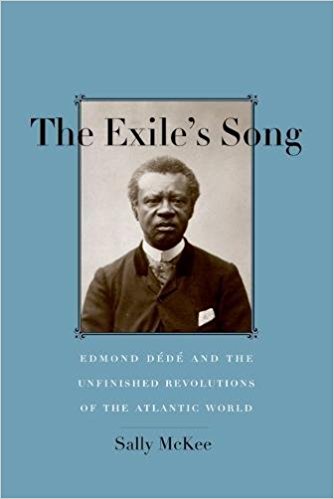
A Lost World of Exiles Brought Back to Life
The Exile’s Song: Édmond Dédé and the Unfinished Revolutions of the Atlantic World (Yale University Press, 2017) by Sally McKee, professor of history. In 1855, Dédé, a free black composer from New Orleans, emigrated to Paris. There he trained with France’s best classical musicians and went on to spend 36 years in Bordeaux leading the city’s most popular orchestras. Beginning with Dédé's birth in antebellum New Orleans in 1827 and ending with his death in Paris in 1901, McKee vividly recounts the life of this extraordinary man.
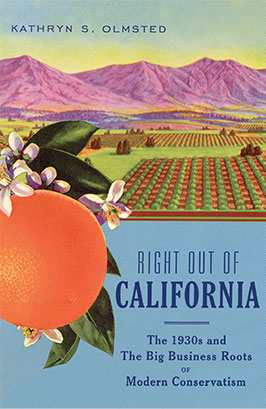
Roots of the Right
Right Out of California: the 1930s and The Big Business Roots of Modern Conservatism (New Press, 2017) by Kathryn S. Olmsted, professor and chair of the Department of History. Olmsted re-examines the labor disputes in Depression-era California that led California's businessmen and media to create a new style of politics with corporate funding, intelligence gathering, professional campaign consultants and alliances between religious and economic conservatives.
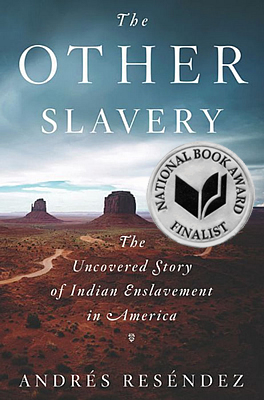
'Other Slavery' Named National Book Award Finalist
A sweeping history by Professor Andrés Reséndez, The Other Slavery: The Uncovered Story of Indian Enslavement in America (Houghton Mifflin Harcourt, 2016), was a finalist for a 2016 National Book Award. “All the time that I spent writing this book, I kept thinking about the 2.5 to 5 million Native Americans held in bondage whose voices were almost completely silenced and whose stories we have mostly chosen to forget,” said Reséndez.
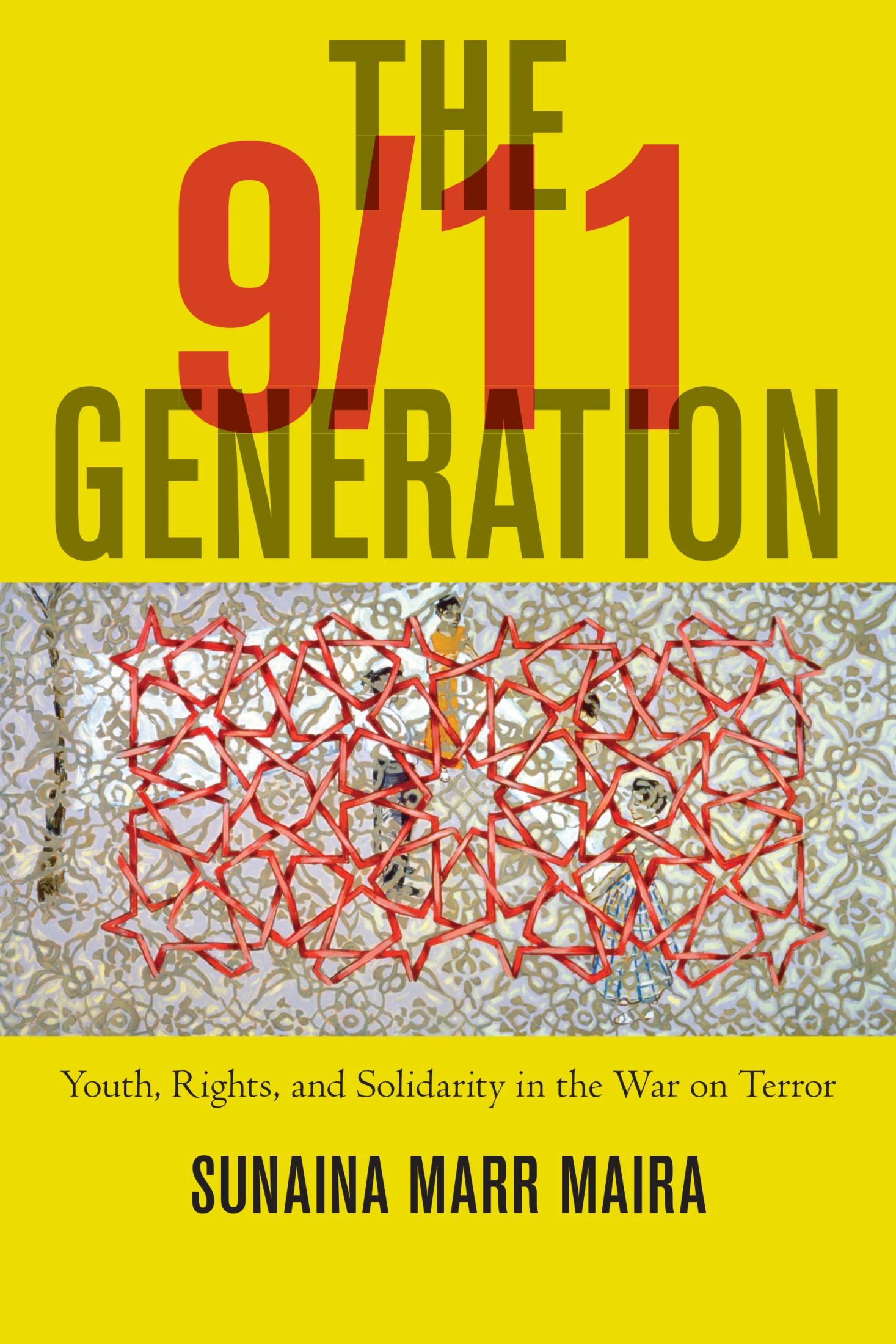
The '9/11 Generation' Lives Life Under Surveillance
Young people of South Asian, Afghan and Arab descent growing up in a post-9/11 world feel constantly under suspicion and surveillance. Their lives are the focus of the book The 9/11 Generation: Youth, Rights, and Solidarity in the War on Terror (New York University Press, 2016) by Sunaina Marr Maira, a professor in the UC Davis Department of Asian American Studies. The book has just been released to coincide with the 15th anniversary of the terrorist attacks of Sept. 11, 2001.
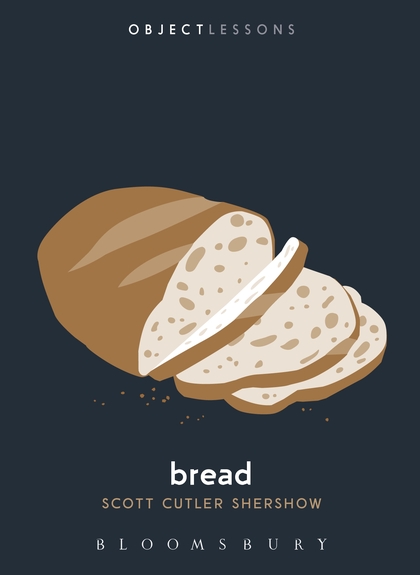
Object Lesson Books Have Close Ties to UC Davis
When alumnus Christopher Schaberg thought about potential contributors to the book and essay series he was creating, he went back to colleagues at UC Davis. So far his UC English doctoral classmates, John Garrison and Kara Thompson, along with English professor Scott Shershow, have written essays and books for the Object Lessons series (Bloomsbury). The series examines the life of ordinary objects we often take for granted. Writers observe the “object” from multiple angles—history, literature, philosophy, science. Anything is fair game and there are no set formats.
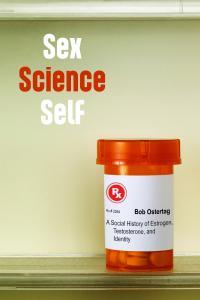
The Science of Sexual Identity
Science Self: A Social History of Estrogen, Testosterone, and Identity (University of Massachusetts Press, 2016 ) by Bob Ostertag, a professor of cinema and digital media. Ostertag examines the development of estrogen and testosterone as pharmaceuticals. He situates this history alongside the story of an increasingly visible and political lesbian, gay, bisexual, and transgender population. He argues that scholarship on the development of sex hormone chemicals does not take into account LGBT history and activism, nor has work in LGBT history fully considered the scientific research that has long attempted to declare a chemical essence of gender.
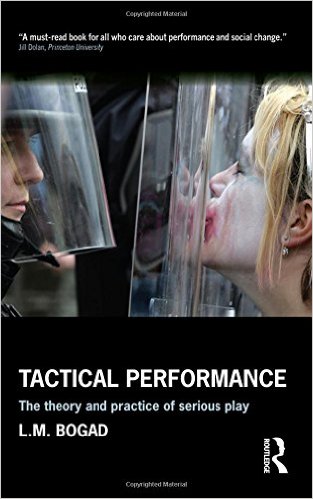
Play and Protest Together
Tactical Performance: The Theory and Practice of Serious Play (Routledge, 2016) by Larry Bogad, a professor in the Department of Theatre and Dance, draws on his experience as a writer, performer and strategist to share effective nonviolent tactics. The book explores creative protest — pranksterism, subvertisement, cultural sabotage — looking at the possibilities for direct action and theatrical confrontation with the most powerful institutions in the world. In addition, a revised and expanded edition of his Electoral Guerrilla Theatre: Radical Ridicule and Social Movements (Routledge) looks at the satirical election campaign, such as Stephen Colbert’s run for President in 2012, and explores the purpose of such public political performances.
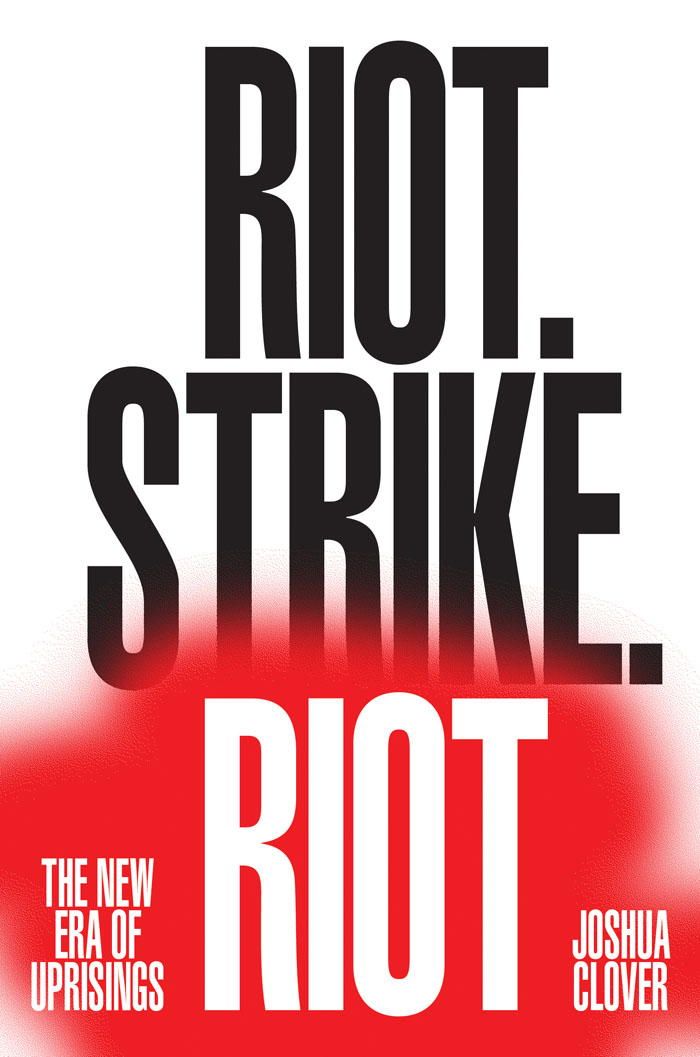
The Growth of Social Unrest
Riot. Strike. Riot: The New Era of Uprisings (Verso, 2016) is by Joshua Clover, English professor and award-winning poet. Clover theorizes the riot as the form of the coming insurrection in his new book. Examining uprisings in Baltimore, Ferguson, Oakland and other places he proposes that we are in an “age of riots” as the struggle of people versus state and capital has taken to the streets. From early wage demands to recent social justice campaigns pursued through occupations and blockades, Clover connects these protests to the upheavals of a sclerotic economy in a state of moral collapse.
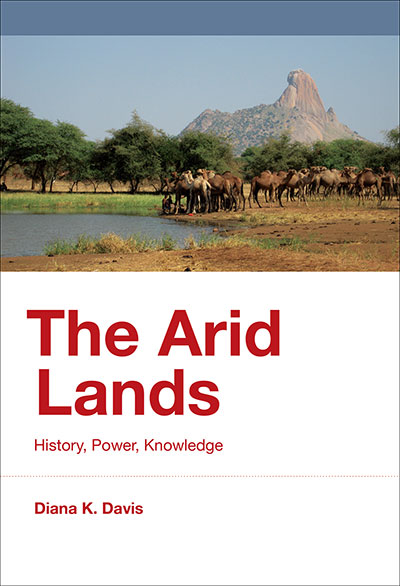
Exposing Myths about Deserts
The Arid Lands: History, Power, Knowledge (The MIT Press, 2016), by Diana Davis, associate professor of history. Deserts are commonly imagined as barren, defiled, worthless places, wastelands in need of development. This book examines their environmental history to expose the myths and demonstrate the diversity of the world's drylands.
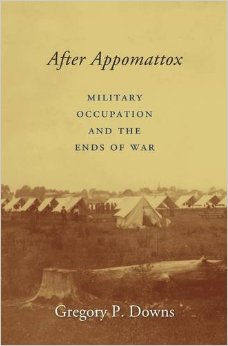
A Fresh Look at Reconstruction
After Appomattox: Military Occupation and the Ends of War (Harvard University Press, 2016), by Gregory Downs, associate professor of history. After Appomattox argues that the war did not end with Confederate capitulation in 1865. Instead, a second phase commenced which lasted until 1871. Using its war powers, the U.S. Army oversaw an ambitious occupation, stationing tens of thousands of troops in hundreds of outposts across the defeated South. This groundbreaking study of the post-surrender occupation makes clear that its purpose was to crush slavery and to create meaningful civil and political rights for freed people in the face of rebels’ bold resistance.

Human Evolution
Humankind: How Biology and Geography Shape Human Diversity (Pegasus Books, 2016), by Alexander Harcourt, professor emeritus of anthropology. In this book, Harcourt explains how the expansion of the human species around the globe and our interaction with our environment explains much about why humans differ from one region of the world to another, not only biologically, but culturally.
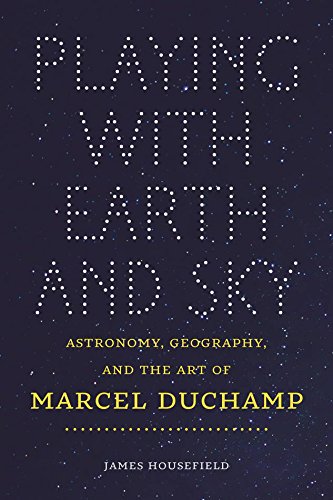
Astronomy and Marcel Duchamp
Playing With Earth and Sky: Astronomy, Geography, and the Art of Marcel Duchamp (Dartmouth College Press, 2016) by James Housefield. Housefield, associate professor in the Department of Design, examines the the influences of astronomy, geography and aviation on artist Marcel Duchamp. One of the most important artists of the 20th century, Duchamp transformed modern art by abandoning unique art objects. In the book, Housefield offers new interpretations of Duchamp’s work showing how environments of popular science, from museums to the modern planetarium, prepared paths for Duchamp’s art.
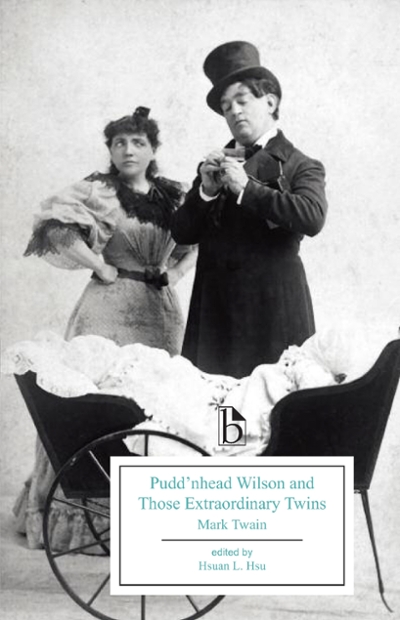
Mark Twain's Twins Tale
Pudd'nhead Wilson and Those Extraordinary Twins by Mark Twain, edited by Hsuan L. Hsu (Broadview Editions, 2016). The two stories published together overflow with spectacular events: conjoined twins, babies exchanged in the cradle, cross-dressing, racial masquerade, duels and a murder mystery. Hsu, an associate professor of English, provides an introduction that traces the history of literary critics’ response to these works, from the confusion of Twain’s contemporaries to the keen interest of current scholars.
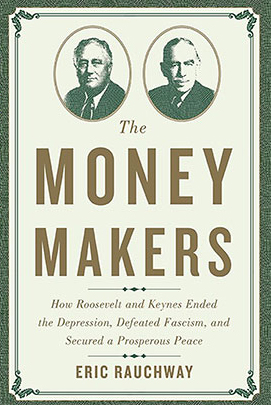
FDR's Economics
The Money Makers: How Roosevelt and Keynes Ended the Depression, Defeated Fascism, and Secured a Prosperous Peace by Eric Rauchway (Basic Books, 2015). Rauchway, professor of history, provides an absorbing narrative showing how President Franklin Roosevelt and his advisors pulled the levers of monetary policy to save the domestic economy and propel the United States to unprecedented prosperity and superpower status.
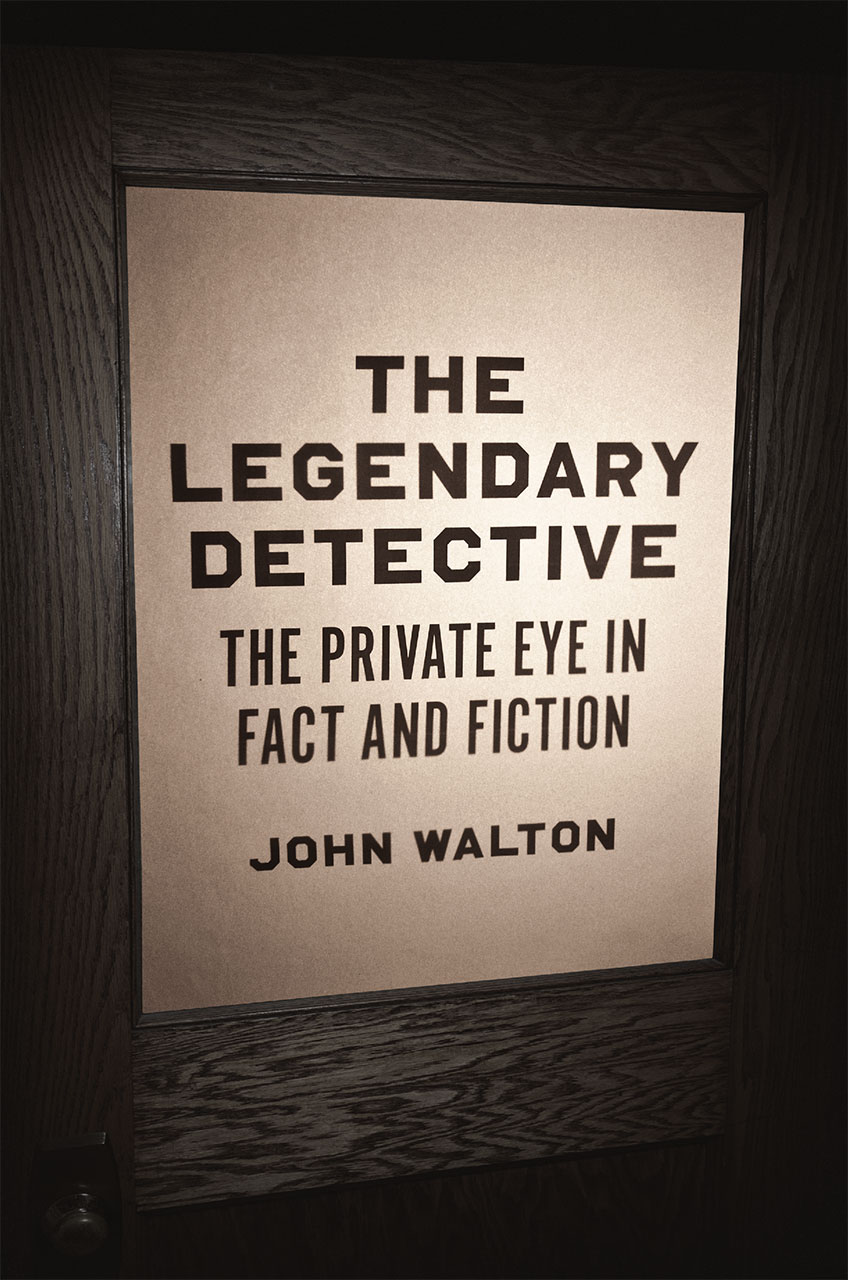
Tracking the History of Gumshoes
The Legendary Detective: The Private Eye in Fact and Fiction (University of Chicago Press, 2015), by John Walton. A distinguished professor of sociology, Walton offers a sweeping history of the American private detective in reality and myth, from the earliest agencies to the hard-boiled heights of the 1930s and ’40s. Drawing on previously untapped archival accounts of actual detective work, Walton traces both the growth of major private detective agencies like Pinkerton, which became powerful bulwarks against social and labor unrest, and the motley, unglamorous work of small-time operatives.

Bin Laden’s Tapes
The Audacious Ascetic: What Osama Bin Laden's Sound Archive Reveals About al-Qa'ida by Flagg Miller (Oxford University Press, 2015). Professor of religious studies, Miller uses Bin Laden’s recordings to detail how Islamic cultural, legal, theological and linguistic vocabularies shape militants’ understandings of al-Qa’ida.
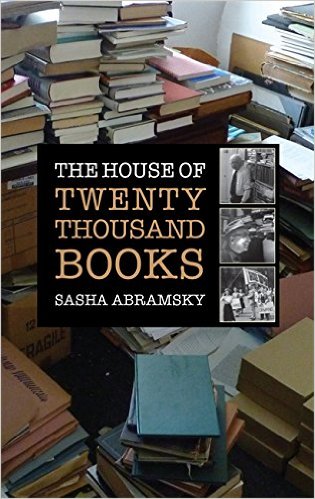
Memoir of a Learned Grandfather
The House of Twenty Thousand Books by Sasha Abramsky (New York Review Books, 2015). Sasha Abramsky, a continuing lecturer in the University Writing Program, examines the life of his grandfather Chimen Abramsky and his remarkable collection of books on Jewish life, history, communism and socialism. For more than 50 years Chimen and his wife, Miriam, hosted gatherings in their house of books that brought together many of the age’s greatest thinkers. Abramsky’s writing has appeared in The Nation, The American Prospect and The New Yorker online.
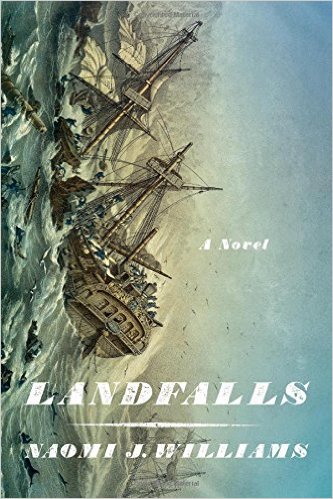
Historical Fiction: An Epic Voyage
Landfalls by Naomi Williams (Farrar, Straus and Giroux, 2015). Inspired by a map she purchased, Naomi Williams, a 2010 graduate of the College of Letters and Science masters in creative writing program, recreates an actual doomed 18th Century attempt to circumnavigate the globe. Each chapter is told from a different point of view and set in a different part of the world. It is the Davis resident’s first novel.
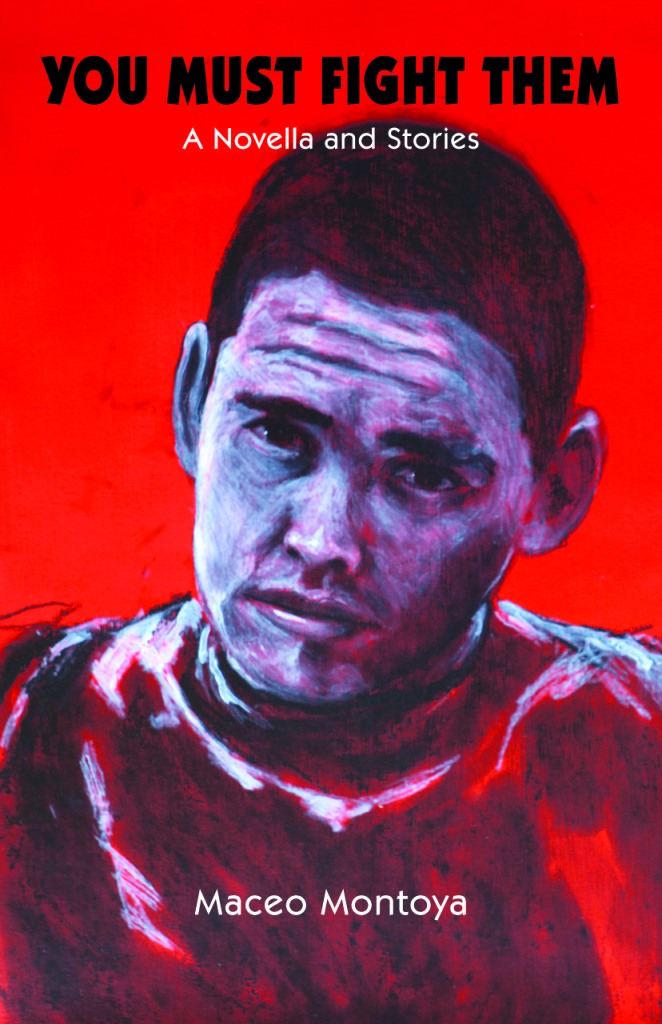
A Novella Set in Woodland, Calif.
You Must Fight Them, by Maceo Montoya (University of New Mexico Press, 2015). In this novella a short, bookish half-Mexican doctoral student returns to his hometown of Woodland, California, and tries to reconnect with Lupita Valdez, the girl he worshipped in high school. First he must come to terms with her three hulking brothers and his own identity. Montoya is an assistant professor in the Department of Chicano Studies.
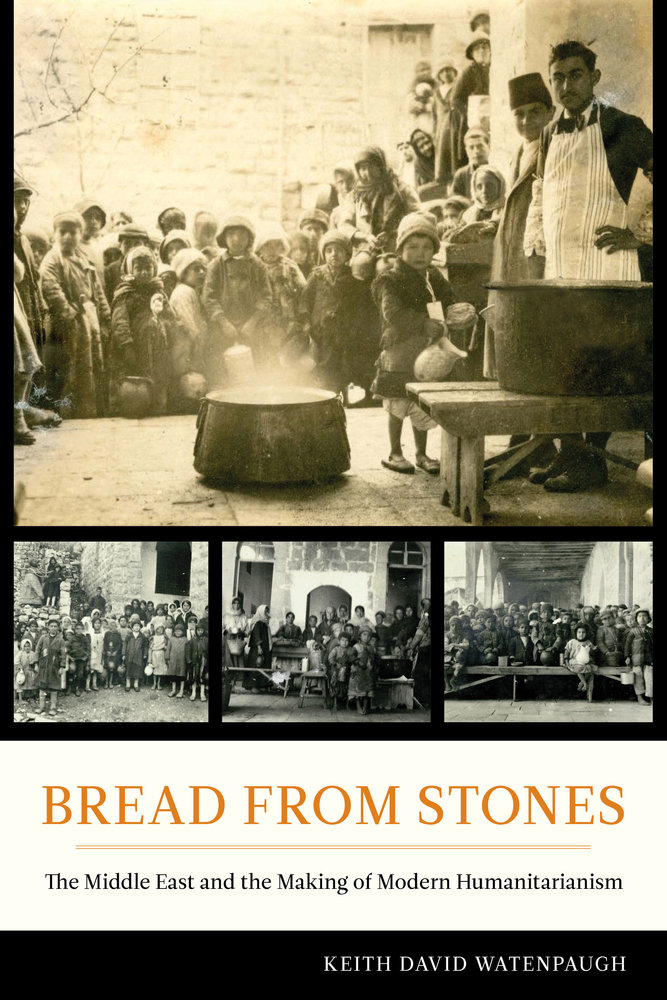
The Rise of Modern Humanitarianism
Bread from Stones: The Middle East & The Making of Modern Humanitarianism, by Keith David Watenpaugh (UC Press, 2015). Watenpaugh, an associate professor in religious studies, analyzes genocide and mass violence, human trafficking and the forced displacement of millions in the Eastern Mediterranean as the background for this exploration of humanitarianism’s role in the history of human rights.

